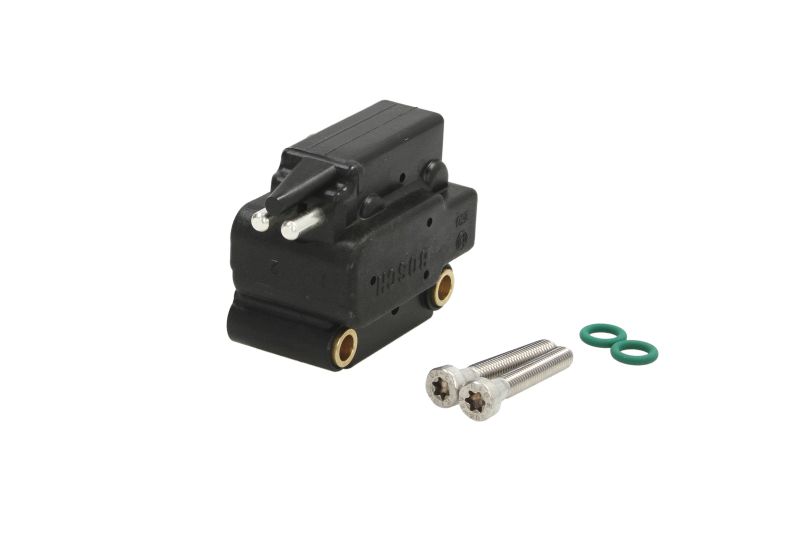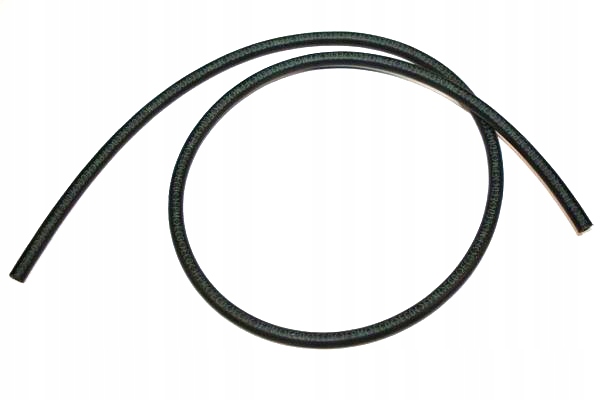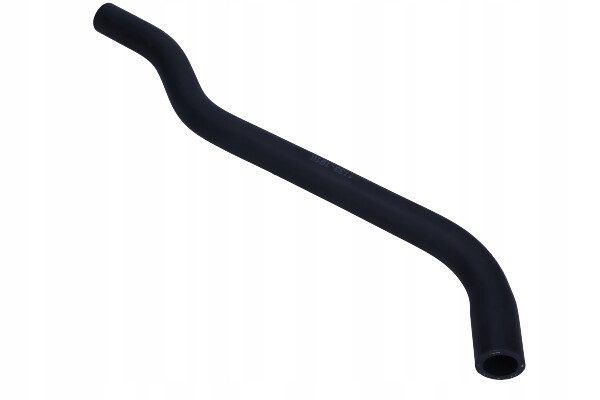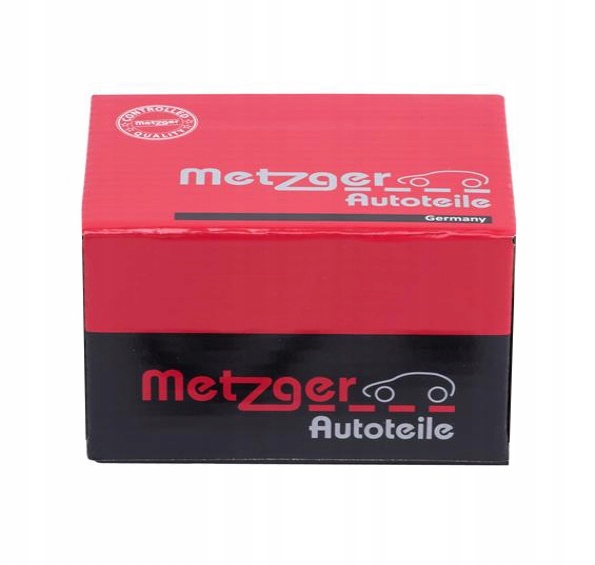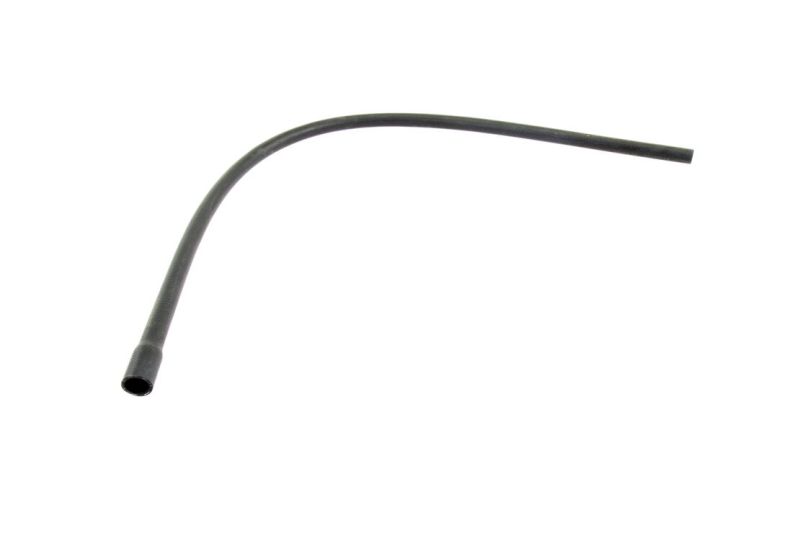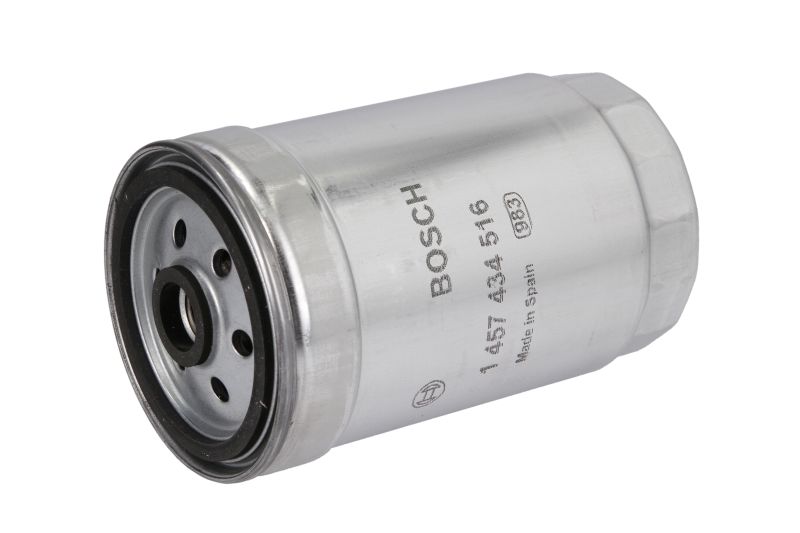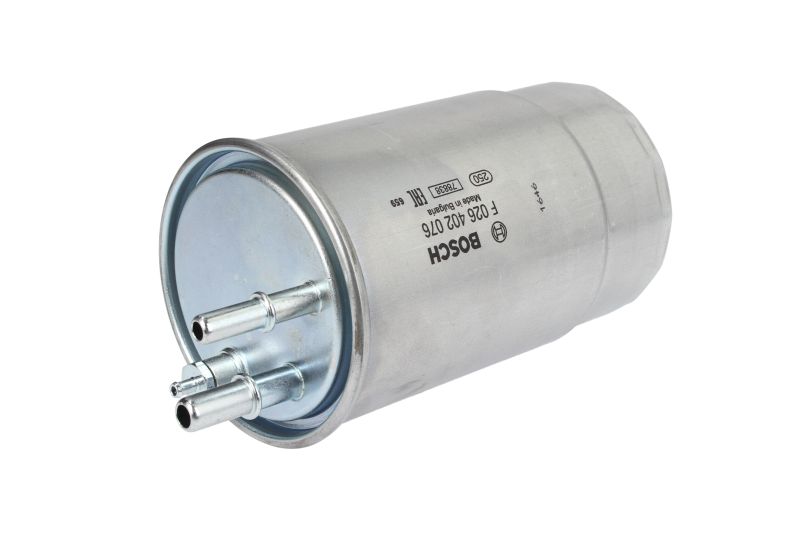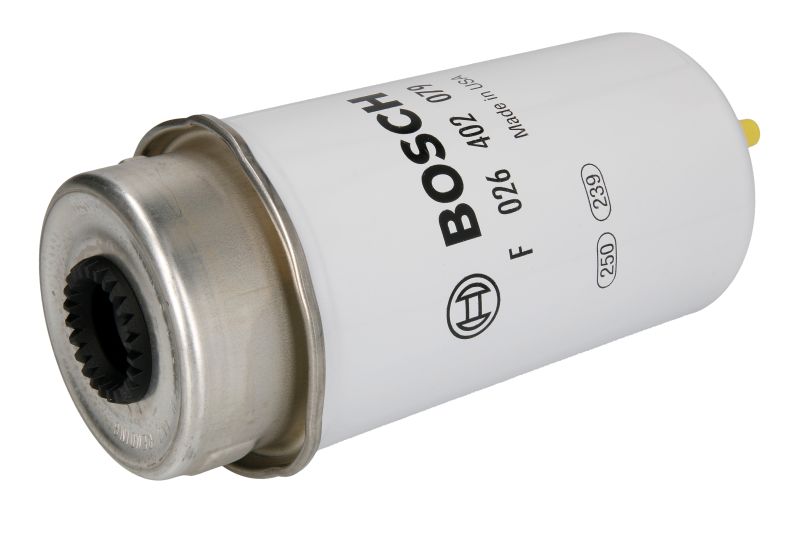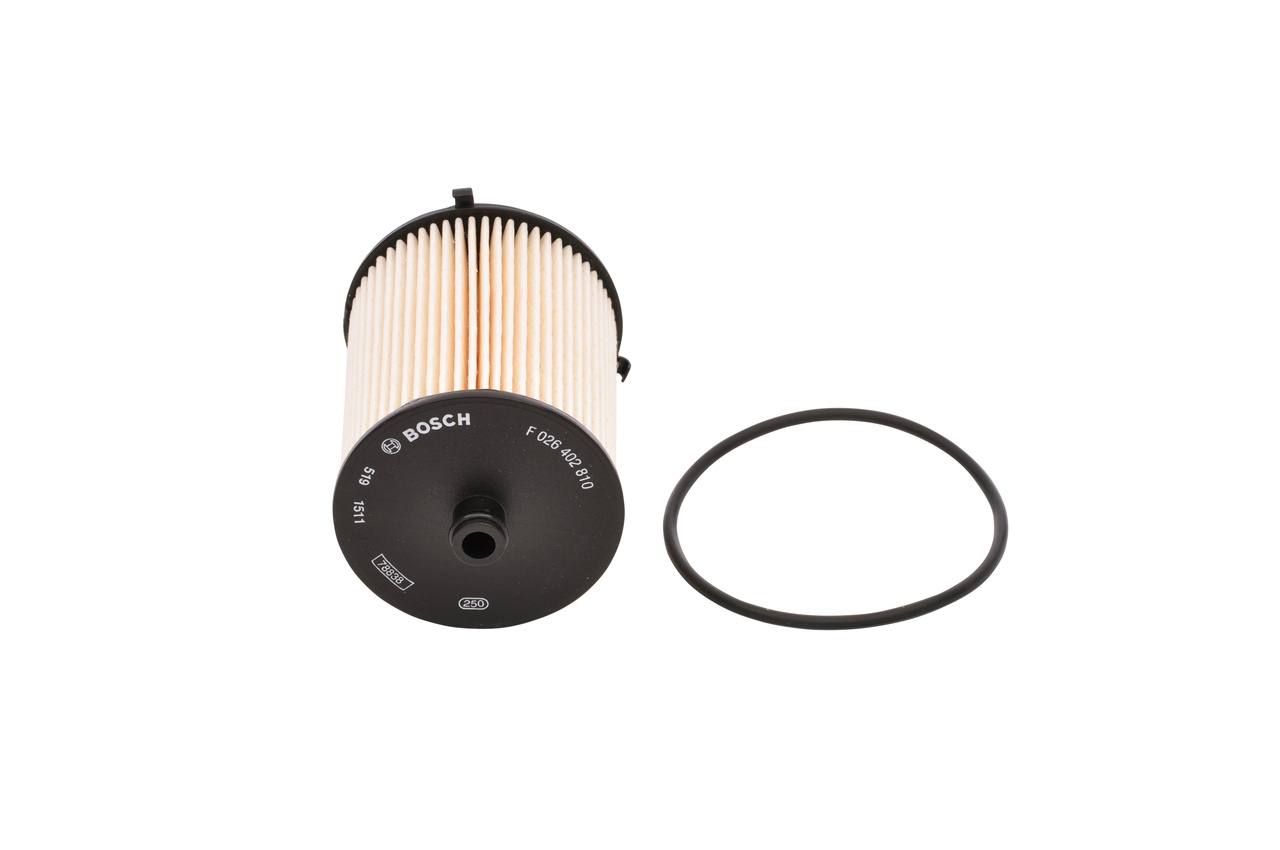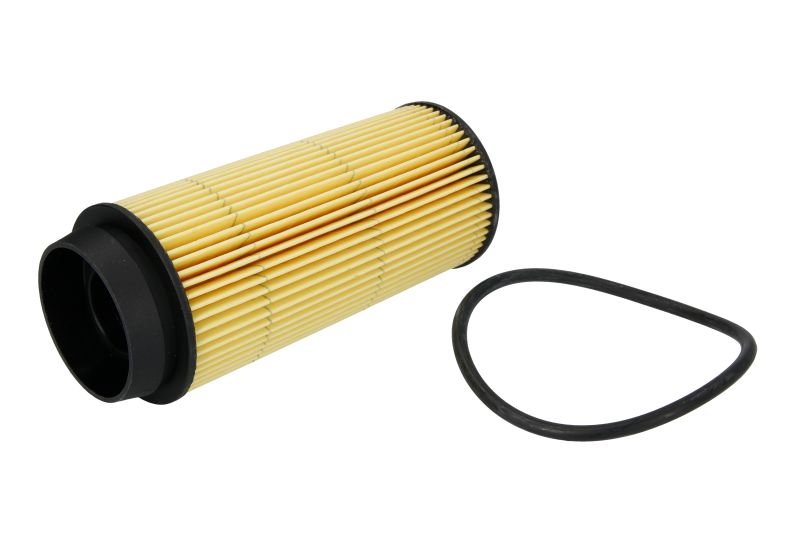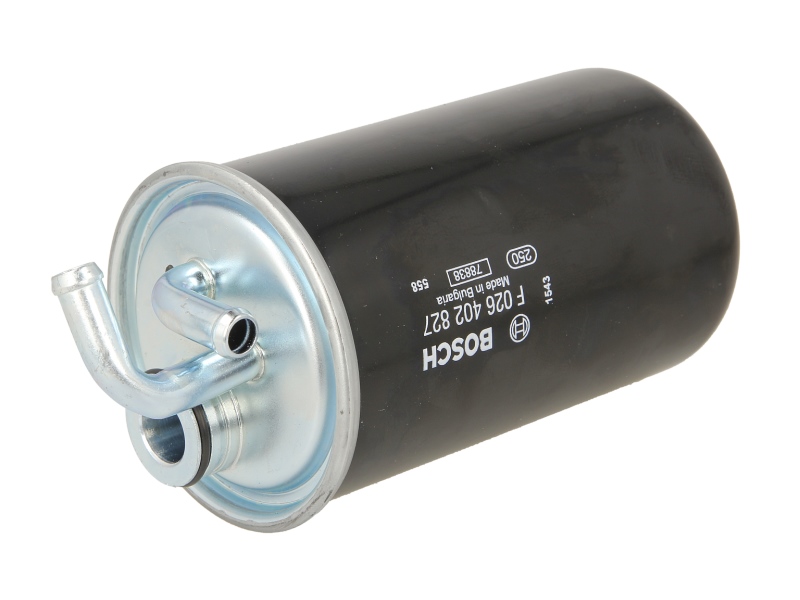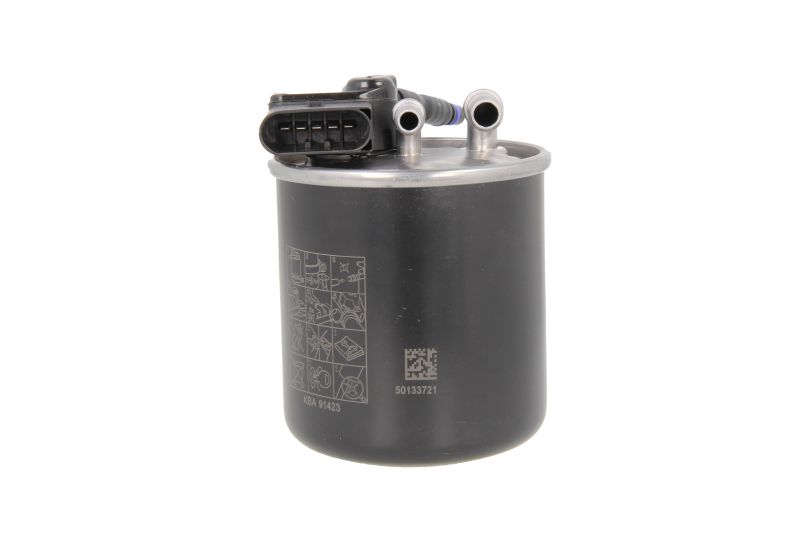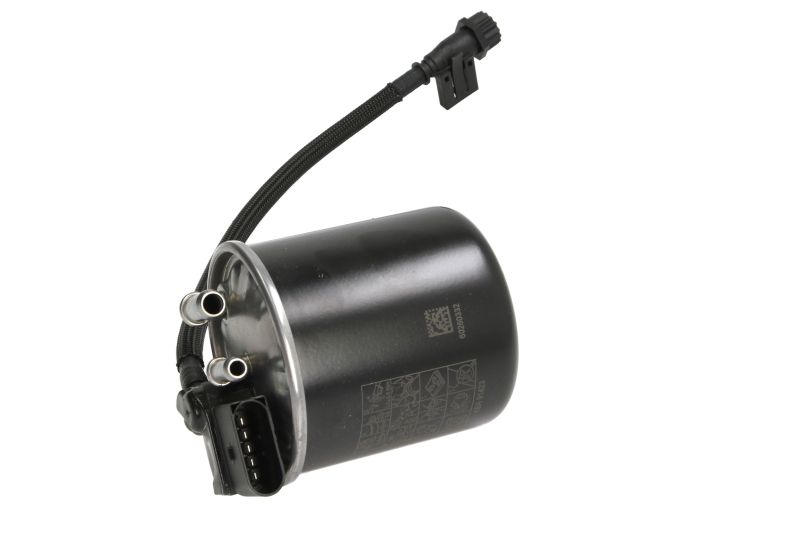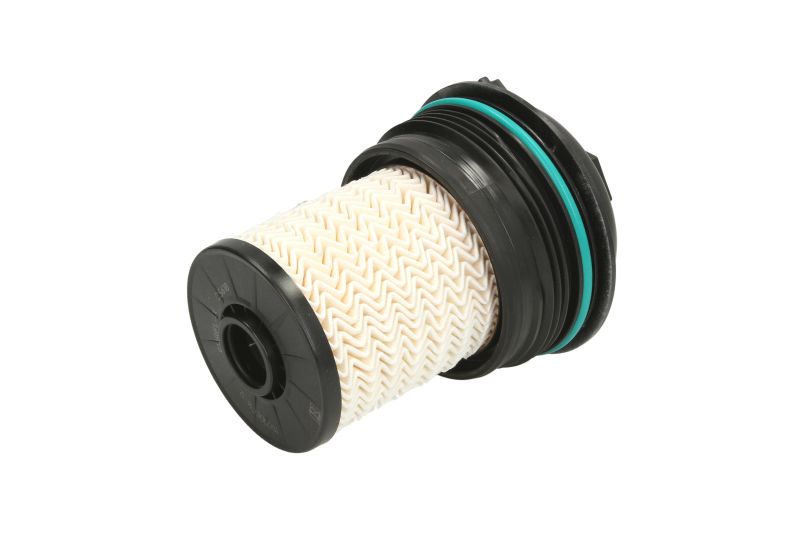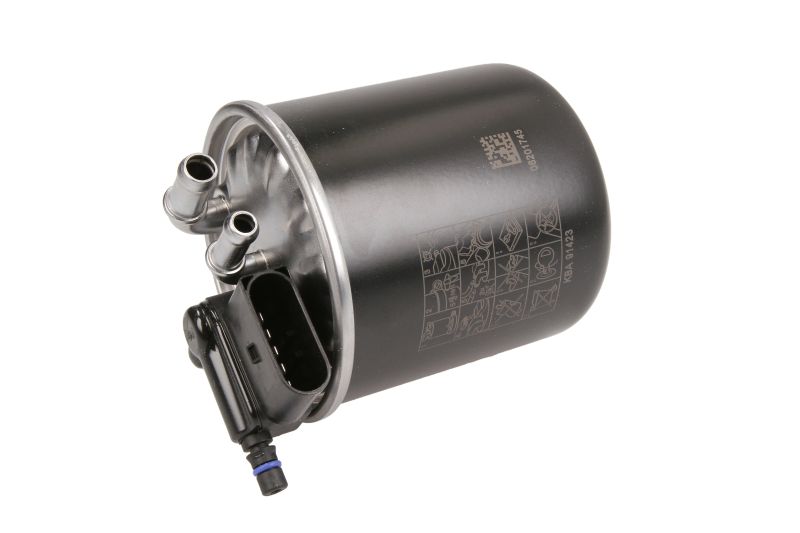- All Categories
-
Car Parts
- Back
- Accessories
-
Air Conditioning
- Back
- AC compressor pulley (clutch)
- AC compressor valve
- Air conditioning pipes
- Air conditioning system seals
- Air Quality Sensor
- Compressor air conditioning and related components
- Condenser, air conditioning
- Coolant temperature sensor
- Dryer air conditioning
- Expansion valve
- Exterior temperature sensor
- Fan, A/C condenser
- Interior temperature sensor
- Other air conditioning parts
- Pressure switch, air conditioning
- Repair Kit, air conditioning
- Resistor, heater motor
- Temperature switch air conditioning fan
-
Axle Drive
-
Axle Mounting/ Steering/ Wheels
- Back
- Anti roll bar bushes
- Anti Roll Bar Links And Anti Roll Bars
- Axle beam and related parts
- Axle beam bushes
- Ball joint / parts
- Camber Adjustment Bolts
-
Control arm / Trailing arm / Bolts
- Back
- Bolt, control arm
- Control Arm/Trailing Arm, wheel suspension
- Control/Trailing Arm Kit, wheel suspension
- Fastening Bolt, control arm
- Mounting Kit, control lever
- Repair Kit, control arm
- Repair Kit, control/trailing arm
- Repair Kit, guide strut
- Repair Kit, wheel suspension
- Rod/Strut, wheel suspension
- Stud, torsion bar
- Suspension, panhard rod
- Control arm bushes
- Hydraulic System
- Wheel bearing housing and related parts
- Wheel bearing kit
- Wheel hub and related parts
- Bearing Journal, tensioner pulley lever
-
Belt Drive
- Belt Pulley Set, crankshaft
- Belt Pulley, crankshaft
- Belt Tensioner, V-ribbed belt
-
Belts / Chains / Rollers
- Back
- Bearing Journal, tensioner pulley lever
- Belt Pulley Set, crankshaft
- Belt Pulley, crankshaft
- Belt Tensioner, V-ribbed belt
- Bolt, tensioner pulley
- Bush, tensioner pulley lever
- Chain Link, oil pump drive
- Chain Lock, timing chain
- Chain Set, oil pump drive
- Chain Spray
- Chain Tensioner, oil pump drive
- Chain, intermediate shaft
- Chain, oil pump drive
- Cover, timing belt
- CVT Drive Belt
- Deflection/Guide Pulley, timing belt
- Deflection/Guide Pulley, V-belt
- Deflection/Guide Pulley, V-ribbed belt
- Gear, timing chain deflector
- Guide Lining, timing chain
- Guide Rails Kit, timing chain
- Guides, timing chain
- Holding Tool, belt pulley
- Lid, tensioner pulley lever
- Link, timing chain
- Mounting Tool Set, belt drive
- Mounting Tools, timing belt
- Mounting Tools, V-ribbed belt
- Oil Filter Belt
- Oil Jet, timing chain
- Piston,timing chain tensioner
- Puller, belt pulley
- Pulley Set, timing belt
- Rail, oil pump drive chain
- Repair Kit, v-ribbed belt tensioner
- Screw Set, gears (timing chain)
- Seal Ring, timing chain tensioner
- Seal, timing chain tensioner
- Spanner, timing belt tension
- Spanner, timing belt tensioner pulley
- Spanner, v-belt tension
- Tension Spring, tensioner pulley (timing belt)
- Tensioner Bolt, alternator mounting
- Tensioner Guide, oil pump drive chain
- Tensioner Guide, timing chain
- Tensioner Lever, timing belt
- Tensioner Lever, V-belt
- Tensioner Lever, V-ribbed belt
- Tensioner Pulley, timing belt
- Tensioner Pulley, V-belt
- Tensioner Pulley, V-ribbed belt
- Tensioner, timing belt
- Tensioner, timing chain
- Timing Belt
- Timing Belt Set
- Timing Chain
- Timing Chain Kit
- V-Belt
- V-Belt Set
- Vibration Damper, timing belt
- Vibration Damper, V-ribbed belt
- V-Ribbed Belt
- V-Ribbed Belt Set
- Water Pump & Timing Belt Set
- Water Pump + V-Ribbed Belt Set
-
Body
- Back
- Battery Holder
- Body Floor
- Bonnet
- Bonnet Cable
- Boot-/Cargo Area Hatch
- Buffer, bonnet
- Buffer, engine cover
- Bumper
- Cable Pull, filler cap release
- Cable Pull, fuel filler cap/flap unit
- Clip, trim/protective strip
- Cover, bumper
- Cover, handle recess
- Cover, light
- Cover, tailgate
- Cross Member
- Door Catch
- Door Hinge
- Door Seal
- Door, body
-
Driver Cab
- Back
- Bellow, driver cab suspension
- Damper Mounting, driver cab
- Exterior Mirror, driver cab
- Gas Spring, front panel
- Holder, exterior mirror
- Interior Mirror
- Mirror Glass, exterior mirror
- Mirror Glass, wide angle mirror
- Repair Kit, driver cab suspension
- Rubber Buffer, driver cab
- Shock Absorber, cab suspension
- Wide-Angle Mirror
- Engine cover
- Exterior Mirror
- Flap, tow hook
- Foot Board, door sill
- Foot/Running Board
- Frame Side Rail
- Front Cowling
- Gas spring for boot / bonnet
- Hatch Door
- Headlight Base
- Headlight Trim
- Hinge, fuel filler flap
- Hinge, hinged window
- Holding Clip Set, body
- Holding Clip, interior panels
- Inner Wing Panel
- Interior Mirror
- Jack Support Plate
- Lane Change Warning Light
-
Load Securing
- Back
- Tightening Strap
- Mirror System
- Mount Set, jack
- Mounting Bracket, bumper
- Mounting Bracket, oil cooler
- Mounting Kit, bumper
- Mountings / Bushes
- Mudguard
- Panelling, mudguard
- Radiator Grille
- Radiator Mounting
- Rear Panel
- Retaining Clip, boot / cargo area panelling
- Retaining Clip, underbody panelling
- Roller Guide, sliding door
- Roof Pillar
- Seal, boot-/cargo area lid
- Seal, door window
- Seal, rear windscreen
- Seal, sunroof
- Seal, windscreen
- Seal, wing
- Side mirrors and related parts
- Sidewall
- Silencing Material, engine bay
- Spare Wheel Well
- Spoiler
- Spring Mounting
- Support Frame/Engine Carrier
- Support, bumper
- Suspension Strut Mounting
- Trim/Protective Strip, bumper
- Trim/Protective Strip, radiator grille
- Ventilation Grille, bumper
- Warm Air Duct
- Windscreen Frame
- Wing
- Bolt, tensioner pulley
-
Braking System
- Back
- ABS and related parts
- Brake booster and related parts
-
Brake caliper and related parts
- Back
- Bellow, brake caliper guide
- Bolt, brake caliper
- Bracket, brake caliper
- Brake Caliper
- Brake Caliper Axle Kit
- Brake Caliper Bracket Set
- Cover, brake caliper
- Dust Cover, brake caliper piston
- Gasket Set, brake caliper
- Guide Bolt, brake caliper
- Guide Sleeve Kit, brake caliper
- Guide Sleeve, brake caliper
- Holder, brake caliper (high performance brakes)
- Sheet, brake caliper piston
- Spring, brake caliper
- Brake caliper piston / repair kit
- BRAKE DISC COVER / SPLASH PANEL
- Brake discs
- Brake drum and related parts
- Brake Fluid
- Brake fluid reservoir / cap and related parts
- Brake hoses and related parts
- Brake master cylinder and related parts
- Brake pads and related parts
- Brake pedal
- Brake Power Regulator
- Brake Pressure Regulator
- Brake shoes for drum brakes and related parts
- Hand brake and related parts
- Other brake system parts
- Parking brake shoes and related parts
-
Vacuum pump and other vacuum parts
- Back
- Connection Piece, vacuum hose
- Filter, vacuum line
- Gasket, vacuum pump
- Gasket, vacuum pump piston
- Membrane, vacuum pump
- Repair Set, vacuum pump (braking system)
- Seal Set, vacuum pump
- Seal, vacuum hose connector pipe
- Tappet, vacuum pump (braking system)
- Vacuum Hose, brake booster
- Vacuum Hose, braking system
- Vacuum Pump, braking system
- Valve, vacuum pump
- Wheel brake cylinder and related parts
- Bush, tensioner pulley lever
- Carrier Equipment
-
Chemical Products
- Back
- Additive, leak location
- Additive, soot/particulate filter regeneration
- Additive, turbocharger (first fill)
- Air Conditioning Cleaner/-Disinfecter
- Antifreeze
- Antifreeze, window cleaning system
- Binding Agent
- Body Sealer Paste
- Brake / Clutch Cleaner
- Brake Fluid
- Cartridge, hot gun
- Chain Spray
- Cleaner / Thinner
- Cleaner, carburettor
- Cleaner, cooling system
- Cleaner, diesel injection system
- Cleaner, petrol injection system
- Cleaner, window cleaning system
- Contact Spray
- Copper Grease
- Disinfectant
- Engine Cleaner
- Engine Oil
- Engine Oil Additive
- Epoxy Adhesive
- Fast Cleaner
- Fuel Additive
- Gasket Remover
- Grease
- Grease Spray
- Hand Cleaners
- High Temperature Lubricant
- Hydraulic Oil
- Hydraulic Oil Additive
- Insect Remover
- Interior Cleaner/-Disinfecter
- Leak-finding spray
- Leather Care Lotion
- Leather Cleaner
- Marking Chalk
- Metal Adhesive
- Molybdenum Grease
- Mounting Liquid
- Mounting Paste
- Mounting Spray
- Multi-function Oil
- Oil Spot Remover
- Oil, compressor
- O-Ring Repair Set
- Paste, brake / clutch hydraulic parts
- Polish
- Polishing Cloth
- Preservative, brake parts
- Primer, window adhesive
- Radiator Sealing Compound
- Reinforcement Mesh, plastic repairs
- Rim Cleaner
- Rubber Adhesive
- Rust Solvent
- Seal Paste, exhaust system
- Sealant Adhesive
- Sealant Set, tyre sealant set
- Sealant, tyre sealant set
- Sealing Substance
- Sealing Tape
- Silicon Lubricant
- Solid Seal
- Starter Spray
- Synthetic Material Care Products
- Synthetic Material Cleaner
- Textile / Carpet Cleaner
- Threadlocker
- Transmission Oil
- Transmission Oil Additive
- Tyre Cleaner
- Tyre Fitting Paste
- Tyre Repair Spray
- Universal Adhesive
- Universal Cleaner
- Universal Lubricant
- Valve Cleaner
- Washing Polish
- Window Cleaner
-
Clutch/Attachment Parts
- Back
- Cable Pull, clutch control
- Clutch Actuation System
- Clutch guide tube
-
Clutch hoses / lines
- Back
- Clutch Hose
- Clutch Lines
-
Clutch kit / parts
- Back
- Ball Stud, clutch control
- Bolt Kit, clutch
- Clutch Disc
- Clutch Kit
- Clutch Peak Torque Limiter
- Clutch Pressure Plate
- Clutch Spring Set
- Conversion Set, clutch
- Cover, clutch housing
- Gasket, clutch housing
- Lining Disc Set, clutch
- Membrane Spring Clutch
- Pilot Bearing, clutch
- Release Plate, clutch
- Release Set, clutch operation
- Repair Kit, automatic clutch adjustment
- Repair Set, clutch control (transfer parts)
- Screw, pressure plate
- Seal, releaser shaft
- Shaft Seal Set, clutch
- Steel Lining Disc Set, clutch
- Torsion Damper, clutch
- Clutch pedal / parts
- Clutch release bearing
- Clutch release fork
- Clutch Slave / Master cylinders / parts
- Comfort Systems
-
Compressed Air System
- Back
-
Air suspension compressor / bellows / other parts
- Back
- Air Dryer Cartridge, compressed-air system
- Air Filter, compressor intake
- Bellow, air suspension
- Breather Valve
- Clutch Booster
- Compressor, compressed air system
- Connector, compressed air line
- Control Unit, pneumatic suspension
- Cylinder Head Gasket, compressed air compressor
- Dummy Coupling, coupling head
- Electric Cable, pneumatic suspension
- Mounting, air compressor
- Non-Return Valve
- Pipe
- Piston Ring Set, compressor
- Repair Kit, compressor
- Repair Kit, pressure relief valve (air compressor)
- Seal Ring, compressor
- Sensor, pneumatic suspension level
- Slave Cylinder, engine brake
- Solenoid Valve
- Valve, compressed-air system
-
Cooling System
- Back
- Additional water pump
- Antifreeze
- Cap, radiator / coolant tank
- Coolant flange / coolant tube
-
Coolant radiator fan / parts
- Back
- Bearing, radiator fan shaft
- Clutch, radiator fan
- Control Unit, electric fan (engine cooling)
- Cooler Module
- Cowling, radiator fan
- Electric Motor, radiator fan
- Fan Ring
- Fan Wheel, engine cooling
- Fan, radiator
- Relay, cooling fan
- Relay, radiator fan castor
- Series Resistor, electro motor radiator fan
- Support, cooling fan
- Temperature Switch, radiator fan
- Coolant temperature and other sensors
- Expansion tank / parts
- Hoses, coolant radiator
- Radiator, engine cooling
- Seal, coolant tube
- Thermostat / housing / parts
- Water Pump & Timing Belt Set
- Water pump / parts
- Water Pump + V-Ribbed Belt Set
-
Electrics
- Back
-
Alternator / parts
- Back
- Alternator
- Alternator Freewheel Clutch
- Alternator Regulator
- Alternator, starter
- Cable Repair Set, alternator
- Carbon Brush, alternator
- Diode Holder, alternator
- Drive Bearing, alternator
- Fan, alternator
- Holder, carbon brushes
- Mounting Set, alternator rotor
- Mounting, alternator
- Overvoltage Protector, alternator
- Protective Cap, alternator
- Pulley, alternator
- Rectifier, alternator
- Repair Set, alternator
- Repair Set, alternator rectifier
- Rotor, alternator
- Slip Ring Bearing, alternator
- Slip Ring, alternator
- Stator, alternator
- Tensioner Bolt, alternator mounting
- Battery
- Central Electrics
- Electric Supply
-
Electric Universal Parts
- Back
- Adapter, fuse
- Appliance Battery
- Assortment, automatic circuit breakers
- Assortment, crimp connectors
- Assortment, fuses
- Assortment, plug housings
- Assortment, repair cable
- Assortment, solder connections
- Assortment, squeeze connectors
- Automatic Circuit Breaker
- Battery Terminal Clamp
- Cable Connector
- Cable Connector Kit
- Cable Junction Box
- Cable Set
- Charge Cable, electric vehicle
- Coiled Cable
- Corrugated Pipe
- Corrugated Pipe Fastening
- Cover, battery terminal clamp
- Cover, power socket
- Crimp Connector
- Earth Strap
- Electric Cable
- Fuse
- Fuse Box
- Fuse Holder
- Fuse Kit
- Insulating Tape
- Main Switch, battery
- Mesh Hose
- Plug
- Plug Connector
- Plug Housing
- Plug Housing Set
- Relay Socket
- Relay, main current
- Repair Cable
- Seal Ring, corrugated pipe
- Socket
- Soldered Connector
- Squeeze Connector
- Switch
- Switch Holder
- Time Relay
- Voltage Limiter, electrical system
- Voltage Transformer
-
Exhaust Gas Recirculation (EGR)
- Back
- Cable Repair Set, EGR valve
- Cable Repair Set, pressure transducer
- Control, exhaust gas cooler return
- Cooler, exhaust gas recirculation
- EGR Module
- EGR Valve
- Gasket Set, EGR system
- Gasket, EGR valve bracket
- Gasket, EGR valve pipe
- Pipe, EGR valve
- Position sensor, EGR valve
- Pressure Converter
- Pressure Converter, exhaust control
- Seal, EGR valve
- Thermostat, EGR cooling
- Vacuum Control Valve, EGR
- Valve, EGR exhaust control
- Valve, exhaust gas recirculation
- Ignition System
-
Instruments
- Back
- Angle Drive, speedometer cable
- Cable Repair Set, outside temperature sensor
- Cable Repair Set, speed sensor
- Control Lamp
- Controller, steering column switch
- Fuel Gauge
- Head Up Display
- Manometer
- Multi-function Gauge
- Sender Unit, oil pressure
- Sender Unit, oil temperature / pressure
- Sensor, cylinder head temperature
- Sensor, exterior temperature
- Sensor, odometer
- Sensor, oil temperature
- Sensor, RPM
- Sensor, speed
- Sensor, speed / RPM
- Shaft Seal, speedometer drive
- Shift Console, automatic transmission
- Speedometer Cable
- Steering Column Switch
- Switch, handbrake warning light
- Lock System
-
Signal System
- Back
- Adapter, brake lamp switch
- Auxiliary Indicator
- Auxiliary Stop Light
- Brake Light Switch
- Bulb, auxiliary stop light
- Bulb, direction indicator
- Bulb, stop light
- Cable Repair Set, direction indicator
- Control Stalk, indicators
- Direction Indicator
- Electric Motor, rotating beacon
- Flasher Unit
- Hazard Light Switch
- Hazard Lights Relay
- Holder, rotating beacon
- Housing, direction indicator
- Indicator Set
- Lamp Base, direction indicator
- Lens, direction indicator
- Lens, rotating beacon
- Lens, stop light
- Reflector, direction indicator
- Relay, horn/signal horn
- Rotating Beacon
- Signal Horn
- Signal System, emergency vehicle
- Signal Unit
- Stop Light
- Strobe-type Beacon
- Switch, horn
- Switch, stop light
- Trumpet Horn
-
Starter System
- Back
- Armature, starter
- Battery Adapter
- Bush, starter shaft
- Cable Repair Set, ignition/starter switch
- Cable, starter
- Carbon Brush, starter
- Collector End Shield Bush, starter
- Connector Cable, starter battery
- Engagement Lever, starter
- Field Winding, starter
- Freewheel Gear, starter
- Holder, carbon brushes
- Ignition-/Starter Switch
- Multiple Disc Clutch, starter
- Pinion, starter
- Relay, immobilizer
- Relay, start repeater
- Relay, starter
- Repair Kit, internal gear (planetary drive)
- Repair Kit, starter
- Repair Set, planetary gear starter
- Ring Gear, planetary gear (starter)
- Solenoid Switch, starter
- Starter
- Voltage Stabiliser, start/stop system
-
Engine
- Back
-
Air Supply
- Back
- Accelerator Cable
- Accelerator Pedal
- Actuator, turbocharger
- Adapter Cable, air supply control flap
- Air Filter
- Air filter kit
- Air Filter, turbocharger
- Air Intake System
- Auxiliary Air Slide
- Bolt, charger mounting
- Boost Pressure Control Valve
- Cable Repair Set, sensor (intake manifold pressure)
- Change-Over Valve, change-over flap (induction pipe)
- Charger Air Hose
- Charger, charging system
- CHRA Cartridge, charger
- Clamp, charger
- Control Box, charger
- Control Flap, air supply
- Control Valve, air intake
- Control, change-over cover (induction pipe)
- Control, swirl covers (induction pipe)
- Diverter Valve, charger
- Fitting, intake manifold
- Gasket Set, charger
- Gasket, charge air cooler
- Gasket, charger
- Gasket, intake air preheating heater flange
- Gasket, intake manifold housing
- Heater Flange, intake-air preheater
- Holder, air filter housing
- Holding Clamp, charger air hose
- Hollow Screw, charger
- Hose, air supply
- Idle Control Valve, air supply
- Intake Hose, air filter
- Intake Manifold Module
- Intake Manifold, air supply
- Intercooler, charger
- Low Temperature Cooler, intercooler
- Mounting Kit, charger
- Oil Pipe, charger
- Pedal Pad, accelerator pedal
- Pressure converter, turbocharger
- Pressure Transducer, suction pipe
- Radiator Core, intercooler
- Repair Kit, charger
- Repair Kit, intake manifold module
- Repair Set, accelerator pedal
- Resonator, turbo air cooling
- Rubber Buffer, air filter
- Seal Ring, air filter housing intake hose
- Seal Ring, charger
- Seal Ring, oil outlet (charger)
- Seal Ring, turbo air hose
- Seal, air filter housing
- Seal, idle speed control valve - air supply
- Seal, oil inlet (charger)
- Seal, oil outlet (charger)
- Seal, turbine inlet (charger)
- Seal, turbine outlet
- Seal, turbo boost control valve
- Seal, water connector (charger)
- Secondary Air Filter
- Sensor, suction pipe reverse flap
- Sports Air Filter
- Threaded Bolt, charger
- Throttle body
- Valve, compressor bypass flap
-
Carburettor
- Back
- Bypass Heater
- Choke Shaft, carburettor
- Connection Piece, coolant line
- Diaphragm, carburettor
- Flange, carburettor
- Gasket, carburettor flange
- Nozzle Needle, carburettor
- Relay, cold start control
- Relay, intake manifold heating
- Repair Kit, carburettor
- Sensor, throttle position
- Spring, throttle control linkage
- Starter Lid, carburettor
- Temperature Switch, automatic choke
- Temperature Switch, intake manifold preheating
- Vacuum Chamber, carburettor
- Vapour Trap, carburettor
-
Crankcase
- Back
- Bearing, balance shaft
- Bearing, crankcase vent valve
- Cylinder Sleeve
- Cylinder Sleeve Kit
- Frost Plug
- Full Gasket Set, engine
- Gasket Set, crank case
- Gasket, housing cover (crankcase)
- Hose, crankcase breather
- Housing Cover, crankcase
- Intermediate Shaft
- Membrane, crankcase breather
- Oil Trap, crankcase breather
- O-Ring Set, cylinder sleeve
- O-Ring, cylinder sleeve
- Repair Set, crankcase breather
- Screw Plug, crankcase
- Seal Ring, cylinder liner
- Seal Set, crankcase ventilation
- Seal, crankcase breather
- Valve, engine block breather
-
Crankshaft Drive
- Back
- Big End Bearings
- Bolt Set, crankshaft brackets
- Bolt, crankshaft mounting bracket
- Bolt, flywheel ring gear carrier
- Connecting Rod
- Connecting Rod Bolt
- Connecting Rod Nut
- Conrod Bearing Set
- Crankshaft Bearing Set
- Crankshaft Bearings
- Filter, crankcase breather
- Flywheel
- Flywheel Bolt
- Hub, crankshaft
- Oil Baffle, crankshaft
- Piston
- Piston Ring
- Piston Ring Kit
- Piston Set
- Pulley Bolt
- Repair Kit, flywheel
- Repair Set, piston/sleeve
- Ring Gear, crankshaft
- Ring Gear, flywheel
- Screw Set, flywheel
- Seal Set, crankshaft
- Seal, flywheel
- Shaft Seal Set, engine
- Shaft Seal, crankshaft
- Small End Bushes, connecting rod
- Thrust Washer, crankshaft
- Torsional Damper, flywheel
-
Cylinder Head
- Back
- Bolt Kit, cylinder head
- Bolt, cylinder head cover
- Bush, rocker arm
- Cylinder Head Bolt
- Cylinder Head Cover
- Gasket Set, cylinder head
- Gasket Set, cylinder head cover
- Gasket Set, exhaust manifold
- Gasket Set, intake manifold
- Gasket Set, intake/exhaust manifold
- Gasket, cylinder head
- Gasket, cylinder head cover
- Gasket, exhaust manifold
- Gasket, intake manifold
- Gasket, intake/ exhaust manifold
- Hose, cylinder head cover breather
- Oil Scraper Plate, crankcase breather
- Pipe, oil filler neck
- Plug, rocker arm shaft mounting bore
- Screw Set, cylinder head cover
- Seal Ring, cylinder head cover bolt
- Seal Ring, exhaust manifold
- Seal Ring, injector shaft
- Seal Ring, spark plug shaft
- Seal Ring, valve stem
- Seal Set, valve stem
- Seal, coolant pipe
- Seal, oil filler cap
- Sealing Cap, oil filler neck
- Spark Plug Pipe
- Valve Guides
- Valve Seat
- Washer, cylinder head bolt
- Engine Mounting System
-
Engine Timing
- Back
- Accessory Kit, finger follower
- Accessory Kit, rocker arm
- Actuator, exentric shaft (variable valve lift)
- Adjusting Disc, valve clearance
- Ball Socket, tappet
- Bearing Bracket, camshaft
- Bolt, rocker arm shaft
- Cable Repair Set, camshaft adjuster
- Camshaft
- Camshaft Adjuster
- Camshaft Adjuster Set
- Camshaft Bushes
- Camshaft Kit
- Central Magnet, camshaft adjustment
- Central Valve, camshaft adjustment
- Chain Lock, timing chain
- Chain, intermediate shaft
- Connecting Cable, camshaft adjuster actuating solenoid
- Control Valve, camshaft adjustment
- Counter Nut, valve clearance adjusting screw
- Finger Follower, engine timing
- Gasket Set, timing case
- Gasket, intermediate shaft
- Gasket, timing case
- Gasket, timing case cover
- Gear, balance shaft
- Gear, camshaft
- Gear, crankshaft
- Gear, distributor shaft
- Gear, intermediate shaft
- Gear, timing chain deflector
- Guide Lining, timing chain
- Guide Rails Kit, timing chain
- Guides, timing chain
- Hub, camshaft gear
- Inlet Valve
- Link, timing chain
- Locking Cover, camshaft
- Oil Jet, timing chain
- O-Ring, push rod tube
- Outlet valve
- Piston,timing chain tensioner
- Repair Kit, camshaft adjustment
- Repair Kit, intermediate shaft
- Repair Set, camshaft bearing bracket
- Rocker Arm Bridge
- Rocker Arm Shaft, engine timing
- Rocker Arm, engine timing
- Rotor, valve rotation
- Screw Set, gears (timing chain)
- Screw, camshaft gear
- Seal Ring, timing chain tensioner
- Seal, adjusting element (eccentric shaft)
- Seal, camshaft adjustment
- Seal, camshaft sealing cover
- Seal, tappet chamber cover
- Seal, timing chain tensioner
- Sensor, eccentric shaft (variable valve lift)
- Shaft Seal, camshaft
- Shaft Seal, intermediate shaft
- Tappet
- Tensioner Guide, timing chain
- Tensioner, timing chain
- Thrust Piece, inlet/outlet valve
- Timing Case
- Timing Case Cover
- Timing Chain
- Timing Chain Kit
- Valve Cap
- Valve Cotter
-
Exhaust Gas Recirculation (EGR)
- Back
- Cable Repair Set, EGR valve
- Cable Repair Set, pressure transducer
- Control, exhaust gas cooler return
- Cooler, exhaust gas recirculation
- EGR Module
- EGR Valve
- Gasket Set, EGR system
- Gasket, EGR valve bracket
- Gasket, EGR valve pipe
- Pipe, EGR valve
- Position sensor, EGR valve
- Pressure Converter
- Pressure Converter, exhaust control
- Seal, EGR valve
- Thermostat, EGR cooling
- Vacuum Control Valve, EGR
- Valve, EGR exhaust control
- Valve, exhaust gas recirculation
-
Lubrication
- Back
- Assortment, oil drain plugs
- Baffle Plate, oil sump
- Bolt, oil sump
- Buffer, oil sump mounting
- Cable Repair Set, oil pressure switch
- Cap, oil filter housing
- Chain Link, oil pump drive
- Chain Set, oil pump drive
- Chain Tensioner, oil pump drive
- Chain, oil pump drive
- Engine Oil
- Gasket Set, centrifugal cleaner
- Gasket Set, oil cooler
- Gasket Set, oil sump
- Gasket, oil cooling thermostat
- Gasket, oil sump
- Gear Set, oil pump
- Housing, oil filter
- Intermediate Shaft Guide, oil pump
- Lubricating Pipe, cam lubrication
- Oil Cooler, engine oil
- Oil Dipstick
- Oil Filter
- Oil Hose
- Oil Jet, piston underside cooling
- Oil Pressure Switch
- Oil Pressure Valve
- Oil Pump
- Oil sump
- Rail, oil pump drive chain
- Regulating Valve, oil pressure
- Repair Kit, oil sump
- Screw Plug, oil sump
- Seal Ring, engine oil level sensor
- Seal Ring, oil cooler
- Seal Ring, oil drain plug
- Seal Ring, oil pressure regulating valve
- Seal, oil cooler
- Seal, oil dipstick
- Seal, oil filter
- Seal, oil filter housing
- Seal, oil pump
- Seal, oil pump cover
- Seal, oil strainer
- Sensor, engine oil level
- Sensor, oil temperature
- Shaft Seal, oil pump
- Sprocket, oil pump
- Suction Pipe, oil pump
- Tensioner Guide, oil pump drive chain
- Thermostat, oil cooling
- Tube, oil dipstick
- Secondary Air Injection
-
Service Exchange Engine
- Back
- Partial Engine
-
Exhaust System
- Back
- Catalytic coverter / fitting parts
- DPF filter / related parts
- Exhaust boxes / silencers / manifolds
-
Exhaust fitting parts / seals
- Back
- Assortment, pipe connectors
- Bolt, exhaust manifold
- Bolt, exhaust system
- Bracket, muffler
- Clamp Set, exhaust system
- Clamp, exhaust system
- Flange, exhaust pipe
- Gasket Set, exhaust system
- Gasket, exhaust pipe
- Heat Shield
- Mount, exhaust pipe
- Mount, exhaust system
- Mounting Kit, exhaust pipe
- Mounting Kit, exhaust system
- Mounting Kit, muffler
- Pipe Connector, exhaust system
- Repair Kit, exhaust pipe
- Rubber Buffer, muffler
- Rubber Mount, muffler
- Rubber Strip, exhaust system
- Seal Ring, exhaust pipe
- Spacer Sleeve, exhaust system
- Spring Washer, exhaust system
- Spring, exhaust pipe
- Spring, muffler
- Wire Bracket, exhaust system
-
NOx Sensor / other urea injection parts
- Back
- Control Unit, urea injection
- Delivery Module, urea injection
- Dosing Module, urea injection
- Heating, tank unit (urea injection)
- Injector, urea injection
- Lid, urea filter housing
- NOx Sensor, urea injection
- Pump, delivery module (urea injection)
- Seal Ring, injection valve (urea injection)
- Sealing Cap, tank unit (Urea injection)
- Tank Unit, urea injection
- Urea Filter
- Turbo pressure sensor / exhaust gas door
-
Filters
-
Fuel Mixture Formation
- Back
- Accelerator pedal / parts
- Air mass meter
- Camshaft sensor
- Fuel control valve on common rail / parts
-
Fuel injection pump / parts
- Back
- Actuator, injector pump
- Adjustment Screw, injector pump
- Connector Sleeve, flow divider (injection system)
- Flange, central injection
- Gear, injection pump
- Heat Shield, injection system
- High Pressure Pump
- Holder, injector pump fuel line
- Injection Pump
- Injection Unit, central injection
- Plunger, high pressure pump
- Seal Kit, injector pump
- Seal, injection pump
- Shaft Seal, injector pump
-
Fuel injector / injector seals
- Back
- Cable Repair Set, injector valve
- Connecting Cable, injector
- Cover, injector nozzle
- Distributor Pipe, fuel
- Holder, injector
- Injector
- Injector Holder
- Injector Nozzle
- Inlet connector, injection nozzle
- Nozzle and Holder Assembly
- Nozzle Body
- Plug, injector
- Pump and Nozzle Unit
- Repair Kit, injection nozzle
- Repair Kit, injector holder
- Repair Kit, pump-nozzle unit
- Screw, injection nozzle holder
- Seal Kit, injector nozzle
- Seal Ring Set, injector
- Seal Ring, injector
- Seal Ring, nozzle holder
- Seal, injector holder
- Series Resistor, injector
- Sleeve, nozzle holder
- Fuel pressure sensor
-
Injection system
- Back
- Adjusting Potentiometer, idle mixture
- Cold-start Valve
- Control Unit, engine management
- Control Unit, fuel injection
- Control Unit, injection system
- Fuel Cut-off, injection system
- Fuel Distributor, injection system
- High Pressure Pipe Set, injection system
- High Pressure Pipe, injection system
- Hose, fuel overflow
- Injection System
- Linkage Damper, injection system
- Pressure Accumulator
- Seal Set, injection system
- Lambda sensor
- MAP Sensor (Manifold pressure sensor)
- Nox Sensor
- Sealing Cap, fuel overflow
-
Sensors, Temperature / DPF / others
- Back
- Air Pressure Sensor, height adaptation
- Cable Repair Set, exhaust gas pressure sensor
- Cable Repair Set, intake air temperature sensor
- Cable Repair Set, throttle sensor
- Fuel Sensor, ethanol-petrol ratio
- Knock Sensor
- Particle Sensor
- Pressure Pipe, pressure sensor (soot/particulate filter)
- Sensor, coolant temperature
- Sensor, exhaust gas temperature
- Sensor, fuel temperature
- Sensor, intake air temperature
- Sensor, throttle position
- Switch, brake actuation (engine timing)
- Switch, clutch control (engine timing)
- Temperature Switch, cold start system
- Throttle body
- Turbo control sensor
-
Fuel Supply System
- Back
- Fuel filter / parts
- Fuel hoses / parts
- Fuel pressure valve / switch
-
Fuel Pump and related parts
- Back
- Bellow, fuel pump
- Control Unit, fuel pump
- Filter, fuel pump
- Flange, fuel feed unit
- Fuel Feed Unit
- Fuel Pump
- Fuel Supply Module
- Gasket, fuel pump
- Hand Feed Pump
- Holding Bracket, fuel feed pump
- Pressure Tank, fuel supply
- Pump, fuel pre-supply
- Relay, fuel pump
- Repair Kit, fuel pump
- Seal, fuel sender unit
- Swirlpot, fuel pump
- Valve, fuel pump
- Fuel tank and related parts
- Other fuel supply system parts
- Headlight Washer System
-
Heating/Ventilation
- Hybrid/Electrical Drive
-
Information/ Communication Systems
- Back
- Aerial
- Control, seat adjustment
- Other
-
Parking sensors / parts
- Back
- Angle Correction Ring, sensor (parking distance control)
- Cable Repair Set, parking assistant sensor
- Control Unit, parking distance control
- Control Unit, parking heater
- Extension Cable, parking assist
- Glow Plug, parking heater
- Holder, parking assist sensor
- Parking Distance Control
- Parking Heater
- Reverse Camera, parking distance control
- Reversing Aid
- Screen, parking distance control
- Sensor, parking distance control
- Switch, parking distance control
- Water Pump, parking heater
-
Switches
- Back
- Cable Repair Set, interior heating fan, (eng. preheat sys.)
- Cable Repair Set, seat heating
- Cable Repair Set, window regulator
- Control Element, exterior mirror
- Rain Sensor
- Switch, convertible top
- Switch, door contact
- Switch, mirror adjustment
- Switch, rear hatch release
- Switch, rear window heating
- Switch, seat adjustment
- Switch, steering column adjustment
- Switch, sunroof
- Switch, tailgate
- Switch, tank cap unlock
- Switch, window regulator
- Window regulator motor
-
Interior Equipment
- Back
- Boot gas spring
- Cupholder
-
Floor Mat
- Back
- Floor Mat
- Floor Mat Set
-
Other interior equipment parts
- Back
- Cable Pull, seat back adjustment
- Cargo Area Cover
- Centre Console
- Cigarette Lighter
- Cover, centre console
- Dashboard Air Nozzle
- Door Handle, interior
- Grab Handle, interior trim
- Hinge, storage compartment lid
- Holder, sun visor
- Holding Clip Set, interior trim
- Inner Door-sill
- Slide Shoe, seat adjustment
- Switch, seat heating
- Turning Knob, seat back adjustment
- Window regulator
- Lid, tensioner pulley lever
-
Lights / Lighting System
- Back
- Ballast for xenon light
-
Bulbs
- Back
- Bulb Socket, headlight
- Bulb, boot interior light
- Bulb, door light
- Bulb, door puddle light
- Bulb, front fog light
- Bulb, glove box light
- Bulb, headlight
- Bulb, instrument lighting
- Bulb, interior light
- Bulb, licence plate light
- Bulb, park-/position light
- Bulb, reverse light
- Bulb, spotlight
- Bulb, stop/tail light
- Bulb, tail fog light
- Bulb, tail light
- Bulb, worklight
- Bulbs Assortment
- Cable Repair Set, daytime running light
- Cable Repair Set, front fog light
- Cable Repair Set, glove compartment light
- Cable Repair Set, headlight
- Cable Repair Set, high-beam headlamp bulb
- Cable Repair Set, licence plate light
- Cable Repair Set, reversing light
- Cable Repair Set, side marker lights
- Cable Repair Set, tail light
- Lamp Base, outline lamp
- Repair Set, harness
- For lights / parts
- Headlight / parts
-
Headlight levelling
- Back
- Actuator, headlight levelling
- Cable repair set, actuator headlight levelling
- Control, headlight levelling
- Diffusing Lens, headlight
- Eyelid, headlight
- Frame, headlight
- Harness, headlight
- Headlight
- Headlight Assistance System
- Headlight Set
- Holder Set, additional headlight
- Housing, headlight
- Insert, headlight
- Plug, headlight
- Reflector, headlight
- Repair Kit, headlight
- Seal, headlight
- Seal, headlight frame
- Sensor, headlight levelling
- Sensor, Xenon light (headlight levelling)
- Holder, side marker lights
- Interior Light
- License plate light / parts
- Lights switch
-
Other lights
- Back
- Cap, spot light
- Cap, work light
- Control Unit, dynamic bending light
- Control, instrument lighting
- Daytime Running Light
- Daytime Running Light Set
- Door Footwell Light
- Door Puddle Light
- Driver module, lighting
- Dynamic Bending Light
- Holder, reflex reflector
- Insert, spotlight
- Insert, worklight
- Lens, marker light
- Lens, position light
- Lens, reverse light
- Lens, side marker light
- Lights-on Reminder
- Marker Light
- Outline Lamp
- Park Light
- Position Light
- Reading Light
- Reflector, position-/outline lamp
- Reflector, spotlight
- Reflex Reflector
- Relay, low beam
- Reverse Light
- Seal, combination rearlight
- Searchlight
- Side Marker Light
- Spotlight
- Spotlight Set
- Time Delay Relay, interior light
- Worklight
- Tail light / rear light
-
Locking System
- Back
- Bonnet release handle
- Door handle
- Door release cable
-
Locking system parts / Locks / Switches
- Back
- Bonnet Lock
- Boot Lock
- Cable Repair Set, tailgate lock
- Control Unit, central locking system
- Control, central locking system
- Door Lock
- Door-handle Control
- Glove Compartment Lock
- Guide, locking knob
- Lock Cylinder
- Lock Cylinder Housing
- Lock Cylinder Kit
- Lock Cylinder, ignition lock
- Lock Set, locking system
- Locking Knob
- Locking Pin, door lock
- Rear Door Lock
- Steering Lock
- Switch, door lock
- Switch, door lock system
- Tailgate Lock
- Tailgate Handle
-
Lubrication / Liquids
- Pulley Set, timing belt
- Repair Kit, v-ribbed belt tensioner
- Security Systems
-
Sensors & Switches
- Back
-
Sensors
- Back
- Air Flow Sensor
- Air Mass Sensor
- Air Pressure Sensor, height adaptation
- Air Quality Sensor
- Angle Correction Ring, sensor (parking distance control)
- Cable Repair Set, camshaft sensor
- Cable Repair Set, coolant temperature sensor
- Cable Repair Set, crankshaft position sensor
- Cable Repair Set, exhaust gas pressure sensor
- Cable Repair Set, fuel pressure sensor
- Cable Repair Set, intake air temperature sensor
- Cable Repair Set, intake manifold pressure sensor
- Cable Repair Set, lambda sensor
- Cable Repair Set, outside temperature sensor
- Cable Repair Set, parking assistant sensor
- Cable Repair Set, radar sensor
- Cable Repair Set, sensor (intake manifold pressure)
- Cable Repair Set, speed sensor
- Cable Repair Set, throttle sensor
- Cable Repair Set, wheel speed sensor
- Camshaft sensor
- Clamping Sleeve, wheel speed sensor
- Connector Cable, camshaft sensor
- Coolant temperature and other sensors
- Coolant temperature sensor
- Die Set, lambda sensor
- Exterior temperature sensor
- Flange, camshaft position sensor
- Fuel pressure sensor
- Fuel Sensor, ethanol-petrol ratio
- Holder, parking assist sensor
- Holder, wheel speed sensor
- Housing, air flow sensor
- Interior temperature sensor
- Knock Sensor
- Lambda sensor
- Lambda Sensor
- MAP Sensor (Manifold pressure sensor)
- Mounting Tool Set, tank sensor/fuel pump
- Nox Sensor
- NOx Sensor / other urea injection parts
- NOx Sensor, urea injection
- Parking sensors / parts
- Particle Sensor
- Pedal Travel Sensor, brake pedal
- Pedal Travel Sensor, clutch pedal
- Position sensor, EGR valve
- Position sensor, EGR valve
- Pressure Pipe, pressure sensor (soot/particulate filter)
- Pressure Sensor, brake booster
- Pressure Sensor, master brake cylinder
- Rain Sensor
- Reamer Set, ABS sensor mounting
- Reamer, ABS sensor mounting
- Repair Kit, wheel sensor (tyre-pressure monitoring system)
- Repair Set, ABS sensor
- RPM Sensor, automatic transmission
- RPM Sensor, automatic transmission
- RPM Sensor, manual transmission
- Seal Ring, engine oil level sensor
- Seal Ring, engine oil level sensor
- Sensor oil level / oil temperature
- Sensor Ring, ABS
- Sensor, accelerator pedal position
- Sensor, all-wheel-drive coupling
- Sensor, battery management
- Sensor, boost pressure
- Sensor, brake pad wear
- Sensor, camshaft position
- Sensor, coolant level
- Sensor, coolant temperature
- Sensor, coolant temperature
- Sensor, coolant temperature
- Sensor, crankshaft pulse
- Sensor, cylinder head temperature
- Sensor, eccentric shaft (variable valve lift)
- Sensor, engine bay temperature
- Sensor, engine oil level
- Sensor, engine oil level
- Sensor, exhaust gas temperature
- Sensor, exhaust pressure
- Sensor, exterior temperature
- Sensor, fuel pressure
- Sensor, fuel tank pressure
- Sensor, fuel temperature
- Sensor, headlight levelling
- Sensor, ignition pulse
- Sensor, intake air temperature
- Sensor, intake manifold pressure
- Sensor, odometer
- Sensor, oil temperature
- Sensor, oil temperature
- Sensor, oil temperature
- Sensor, parking distance control
- Sensor, pneumatic suspension level
- Sensor, RPM
- Sensor, speed
- Sensor, speed / RPM
- Sensor, suction pipe reverse flap
- Sensor, switch module
- Sensor, switch module
- Sensor, throttle position
- Sensor, throttle position
- Sensor, wash water level
- Sensor, wheel speed
- Sensor, Xenon light (headlight levelling)
- Sensors, Temperature / DPF / others
- Socket, exhaust gas temperature sensor
- Steering Angle Sensor
- Test Unit, sensor ring
- Turbo control sensor
- Turbo pressure sensor / exhaust gas door
- Water Sensor, fuel system
- Wheel Sensor, tyre-pressure monitoring system
-
Switches
- Back
- Adapter, brake lamp switch
- Blower Switch, heating/ventilation
- Brake Light Switch
- Cable Repair Set, ignition/starter switch
- Cable Repair Set, oil pressure switch
- Cable Repair Set, pressure switch (air conditioning)
- Control Switch, cruise control
- Controller, steering column switch
- Fuel pressure valve / switch
- Hazard Light Switch
- High-pressure Switch, air conditioning
- Ignition-/Starter Switch
- Level Control Switch, coolant level indicator
- Level Control Switch, windscreen washer tank
- Lights switch
- Low-pressure Switch, air conditioning
- Main Switch, battery
- Main Switch, battery
- Main Switch, battery
- Multi-Function Switch
- Oil Pressure Switch
- Oil Pressure Switch
- Oil Pressure Switch, automatic transmission
- Oil Pressure Switch, automatic transmission
- Oil Pressure Switch, power steering
- Oil pressure valve / switch
- Pressure switch, air conditioning
- Pressure Switch, brake hydraulics
- Seal Ring, thermal switch
- Sensor, switch module
- Solenoid Switch, starter
- Steering Column Switch
- Switch
- Switch Holder
- Switch Relay, headlight dimmer
- Switch Unit, ignition system
- Switch, all-wheel drive
- Switch, brake actuation (cruise control)
- Switch, brake actuation (engine timing)
- Switch, clutch control (cruise control)
- Switch, clutch control (engine timing)
- Switch, clutch operator
- Switch, convertible top
- Switch, differential lock
- Switch, door contact
- Switch, door contact
- Switch, door lock
- Switch, door lock system
- Switch, fog light
- Switch, fuel pressure
- Switch, handbrake warning light
- Switch, headlight
- Switch, horn
- Switch, interior light
- Switch, mirror adjustment
- Switch, park brake actuation
- Switch, parking distance control
- Switch, parking light
- Switch, preheating system
- Switch, rear fog light
- Switch, rear hatch release
- Switch, rear window heating
- Switch, reverse light
- Switch, seat adjustment
- Switch, seat heating
- Switch, steering column adjustment
- Switch, stop light
- Switch, sunroof
- Switch, tailgate
- Switch, tank cap unlock
- Switch, window regulator
- Switch, wipe interval control
- Temperature switch air conditioning fan
- Temperature Switch, automatic choke
- Temperature Switch, cold start system
- Temperature Switch, coolant warning lamp
- Temperature Switch, intake manifold preheating
- Temperature Switch, radiator fan
- Wiper Switch
-
Spark/Glow Ignition
-
Steering
- Back
- Power steering fluid expansion tank / cap
- Power steering hoses / related parts
- Power steering pump / parts
- Steering Angle Sensor
- Steering column / parts
- Steering rack / parts
- Steering rack boot / steering arms cover
- Stub axle / repair kit
-
Track rod end / tie rod and / related parts
- Back
- Bar Ends
- Bolt, wheel alignment
- Bush, steering arm
- Bush, steering arm shaft
- Bush, steering control arm
- Bush, steering shaft
- Bush, tie rod end (steering damper mounting)
- Centre Rod Assembly
- Drag Link End
- Eyebolt, tie rod
- Handlebars
- Idler Arm
- Inner Tie Rod
- Mounting Kit, tie rod end
- Mounting, tie rod
- Pitman Arm
- Repair Kit, inner tie rod
- Repair Kit, reversing lever
- Repair Kit, tie rod
- Repair Kit, tie rod ball studs
- Repair Kit, tie rod end
- Shock Absorber, steering
- Steering Arm
- Steering Linkage
- Steering Set
- Tie Rod
- Tie Rod End
- Tie Rod Tube
- Track Rod Set
-
Suspension/Damping
- Back
- Air Spring for air suspension / parts
- Central Hydraulic Oil
-
Coil spring
- Back
- Bush, spring bracket
- Bush, spring eye
- Bush, spring shackle
- Leave Spring Stop, auxiliary spring
- Mounting, spring bracket
- Repair Kit, spring bolt
- Spring Bracket
- Spring Cap
- Spring Clamp
- Spring Pack
- Spring Shackle
- Spring Travel Limiter, suspension spring
- Suspension Kit, coil springs
- Suspension Spring
- Fork Oil
- Leaf spring / parts
-
Shock absorbers and related parts
- Back
- Bush, shock absorber
- Cover, wheel hub
- Dust Cover Kit, shock absorber
- Protective Cap/Bellow, shock absorber
- Return Pipe, shock absorber
- Rubber Buffer, suspension
- Screw Kit, suspension strut/wheel bearing housing
- Shock Absorber
- Spacer Bush, shock absorber
- Support Lever, torsion bar
- Suspension Kit, coil springs / shock absorbers
- Threaded Sleeve, suspension strut
- Sphere suspension
-
Top mountings for shock absorbers / parts
- Tension Spring, tensioner pulley (timing belt)
- Tensioner Lever, V-belt
- Tensioner Lever, V-ribbed belt
- Tensioner Pulley, timing belt
- Tensioner Pulley, V-belt
- Tensioner Pulley, V-ribbed belt
- Tensioner, timing belt
-
Tools
- Back
- 4 Way Wheel Brace
- Adapter Ring Set, brake disc fastening impact test
- Adapter, container (brake fluid filling)
- Adaptor, brake caliper reset tool
- Adhesive Sheet Set, panel beating tools (dent repair)
- Adhesive Sheets, panel beating tools (dent repair)
- Adjustable Clamp, tie rod
- Adjustable Spanner
- Adjustable Spanner Set
- Adjustment Gauge, pump-injector unit
- Adjustment Tool, window wash water jet
- Alignment Measurement Device, belt drive
- Alignment Tools, caster/camber adjustment
- Ampere Pliers
- Angle Grinder (rechargeable battery)
- Angle Measuring Disc
- Angled Drill (compressed air)
- Angled Screwdriver
- Angled Screwdriver Set
- Attachment Set, gas soldering torch
- Attachment, soldering iron
- Balance Weight Pliers
- Battery Terminal/Clamp Milling Cutter
- Bit Holder
- Bit Screwdriver
- Bit Screwdriver Set
- Blade Set, impact wrench
- Blade Set, scraper
- Blade, cable knife
- Blind Rivet Pliers Set
- Body Pliers
- Boring Tool Set, studs
- Boring Tool, studs
- Bracket, alternator drive flange
- Breaker Bar
- Brush, tyre fitting paste
- Bumping Hammer
- Cable stripper
- Camera Probe, video endoscope
- Centering Tool Set, clutch
- Chisel
- Chisel + Drift Set
- Chisel Scraper
- Chisel Set
- Circlip Pliers
- Clamp, brake hose
- Clamp, puller
- Clamping Device, spring compressor
- Cleaning Brush
- Cleaning Brush Set
- Cleaning Disc
- Cleaning Disc, wheel hub cleaning set
- Cleaning Kit, wheel hub
- Cleaning Tool, exhaust recirculation housing
- Cleaning/Milling Tool Set, CR injector seat
- Combination Pliers
- Countersink Set
- Crimping Pliers
- Crimping Pliers Insert
- Crimping Pliers Insert Set
- Crimping Pliers Set
- Cutter Set
- Cutting Disc, angle grinder
- Cutting Tool Set, exhaust pipe
- Cutting Wire Set, glass removal
- Dashboard Protection Panel Set, glass removal
- Deep Seat Milling Cutter
- Demolition Hammer Set (compressed air)
- Die Set, glow plug
- Die Set, lambda sensor
- Dinging Hammer Set
- Disassembly Tool Set, common rail injector
- Disassembly Tool, body holding clip
- Disconnecting/installation Fork Set
- Dividers
- Double Articulated Wrench
- Double Ring Spanner
- Double Ring Spanner Set
- Drift Set
- Drill (compressed air)
- Drill (rechargeable battery)
- Eccentric Tool, track rod ball joint
- Ejector Set, ball joint
- Ejector, ball joint
- Extension Set, socket
- Extension, power socket
- Extension, sockets
- Feeler Gauge
- File Set
- File, brake pad well cleaning
- Flaring Tool Set
- Flaring Tool, brake line
- Flat Pliers
- Fold Aligning Tool
- Folding Knife
- Fuse Tester
- Gas Soldering Torch
- Gauge, disc brake pad
- Grinding Pad
- Grinding Tool Set, valve seat
- Groove Nut Key
- Holder Tool, strut
- Holder, dial gauge
- Holding Pliers, solder braid
- Holding Tool, belt pulley
- Hole Punch
- Hole Saw Set
- Hook Spanner with Joint
- Hook Tool
- Hook Tool Set
- Hooks, puller
- Hose Clamp Pliers
- Impact Open-ended Wrench
- Impact Wrench (compressed air)
- Impact Wrench (rechargeable battery)
- Impact Wrench Set (compressed air)
- Increasing Adapter, ratchet
- Increasing/Reducing Adapter Set, ratchet
- Induction Coil, hot gun
- Induction Heating Gun Set
- Installation Tool Set, brake service
- Installation Tools, brake spring
- Internal Extractor Set
- Internal/External Puller
- Jaw Pads, vice
- Jigsaw (compressed air)
- Kit, pipe wrench/water pump pliers
- Kit, screwdriver bits
- Lock Mandrel, balancer shaft
- Locking Pliers, bleeder screw/valve
- Machining Equipment
- Machinist Hammer
- Magnetic Lift
- Mallet
- Manually-actuated Grease Gun
- Milling Drill
- Monier Pliers
- Mounting Lever
- Mounting Lever Set
- Mounting Sleeve Set, brake disc/-shoe
- Mounting Sleeve, piston ring
- Mounting Tool Kit, alternator freewheel clutch
- Mounting Tool Set, belt drive
- Mounting Tool Set, clutch/flywheel
- Mounting Tool Set, silent bearing
- Mounting Tool Set, tank sensor/fuel pump
- Mounting Tool Set, wheel hub/wheel bearing
- Mounting Tool, alternator freewheel clutch
- Mounting Tool, bellow
- Mounting Tool, exhaust system holder
- Mounting Tool, exhaust system steel bracket
- Mounting Tool, window seal
- Mounting Tools, V-ribbed belt
- Mounting Wedge
- Mounting Wedge Set
- Mounting/Disassembly Tool Set, radio
- Needle File Set
- Needle Scaler (compressed air)
- Oil Dipstick
- Oil Filter Belt
- Oil Filter Spanner Set
- Oilfilter Spanner
- Open-end Spanner Set
- Pin Type Face Spanner
- Pipe Cutter
- Pipe Wrench/Water Pump Pliers
- Pistol-grip Grinder (rechargeable battery)
- Piston Ring Compressor
- Plastic Repair Clamp
- Plastic Repair Set
- Pliers Set, circlip
- Pliers Set, hose clamps
- Pliers Wrench
- Pliers, brake springs
- Pliers, bulb
- Pliers, drive shaft joint retainer
- Pliers, glow plug socket
- Pliers, hose clamp
- Pliers, protective cap (wheel bolt-/nut)
- Pliers, relay
- Pliers, steering bellow clamp
- Pliers, upholstery clamps
- Power Socket Set
- Press-out gun
- Pressure Pad
- Propshaft Ejector/Wheel Hub Puller Flange
- Protractors
- Puller Set
- Puller Set, shaft seal
- Puller, ball joint
- Puller, belt pulley
- Puller, injector seal
- Puller, spark plug connector
- Puller, wiper arm
- Ratchet Double Ring Spanner
- Ratchet Double Ring Spanner Set
- Ratchet Holder, thread tap
- Ratchet Ring Open-ended Spanner
- Ratchet Ring Open-ended Spanner Set
- Ratchet Screwdriver (compressed air)
- Reamer Set, ABS sensor mounting
- Release Pliers, door handle-/window crank retainer
- Release Pliers, hose line
- Release Pliers, muffler rubber mount
- Release Tool Set
- Release Tool, aircon-/fuel hose
- Release Tool, flat-/round plug
- Release Tools
- Removal Lever, door panel
- Removal Pliers, door panel
- Repair Kit, oil drain plug thread
- Repair Kit, stone chip (windscreen)
- Repair Set, reversible ratchet
- Reset Tool, brake caliper piston
- Retaining Clamp, clutch clamping device
- Reversible Ratchet
- Reversible Ratchet Set
- Ring Spanner
- Ring-/Open End Spanner
- Rivet Setter (compressed air)
- Riveting Pliers
- Round Hole Punch
- Round Nose Pliers
- Sanding Block
- Scraper
- Scraper Set
- Screw Extractor
- Screwdriver
- Screwdriver Bit
- Screwdriver Bit Set
- Screwdriver Set
- Screwdriver, battery sealing plug
- Scriber
- Serrated Hammer
- Sheet Metal Shears Set
- Side Cutter
- Slogging Ring Wrench
- Socket
- Socket Insert, glow plug
- Socket Insert, steering knuckle (spreader)
- Socket Set
- Socket Set, cylinder head bolt
- Socket Set, oil drain plug
- Socket Set, spark plug
- Socket, brake caliper
- Socket, exhaust gas temperature sensor
- Soft Face Hammer
- Soldering Iron, plastic repairs
- Soldering Tip
- Spanner Set, brake pipes
- Spanner Set, ring / open ended
- Spanner, timing belt tensioner pulley
- Spark Plug Spanner
- Spindle, brake caliper piston reset tool
- Split Pin Drift Set
- Spot Weld Drill
- Square Adapter Bit Set
- Starter/Block Spanner
- Starter/Block Spanner Set
- Stencil Set, spray painting
- Step Drill
- Step Drill Set
- Stop Bracket
- Stop Spanner, flywheel
- Stopper Set, hose/pipeline
- Straight-grip Grinder (compressed air)
- Straight-grip Grinder (rechargeable battery)
- Strap Pipe Pliers
- Striking Tool Set
- Strippers
- Suction Set, trim fitting
- Suction/Blast Gun (compressed air)
- Sump Separating and Cleaning Kit
- Tape Measure
- Test Device Set, coolant flow (water pump)
- Test Device, cigarette lighter
- Test Set, acid/antifreeze
- Tester, oil pressure
- Testing Set, flywheel
- Thread Chaser
- Thread Cutter Set
- Thread File
- Thread Gauge
- Thread Repair Set, wheel bolts
- Thread Tap Set
- Tool Set
- Tool Set, shock absorber piston rod
- Tool Set, tyre-pressure monitoring system
- Tool Set, valve stem sealing
- Torque Wrench
- Torque Wrench Set
- Track Rod, axial linkage clamp
- Track Rod, axial linkage clamp set
- Turn/Reset Tool Set, brake caliper piston
- Twist Drill Bit
- Twist Drill Bit Set
- Universal Joint, sockets
- Universal Pliers
- Universal Scissors
-
Vehicle Specific Tools
- Back
- Adjustment Tool Set, valve timing
- Alignment Tools, caster/camber adjustment
- Centering Pin, clutch
- Cleaning/Milling Tool Set, CR injector seat
- Compressed Air Adapter, spark plug / glow plug hole
- Compression Pressure Test Set
- Disassembly Tool Set, airbag
- Disassembly Tool Set, common rail injector
- Draw-in Tool Set, drive shaft
- Ejector, control arm bushing
- Engine Cranking Device
- Fuel Filter Spanner
- Holding Tool, crankshaft
- Locking Tool, toothed rack (steering)
- Mounting Kit, supporting joint
- Mounting Kit, wishbone silent bearing
- Mounting Sleeve, ignition lock
- Mounting Tool Kit, alternator freewheel clutch
- Mounting Tool Set, ball joint
- Mounting Tool Set, clutch/flywheel
- Mounting Tool Set, crankshaft pulley
- Mounting Tool Set, inlet/outlet valve
- Mounting Tool Set, pump-injector unit
- Mounting Tool Set, silent bearing
- Mounting Tool Set, wheel hub/wheel bearing
- Mounting Tool, ball joint
- Mounting Tool, camshaft
- Mounting Tool, door lock/lock cylinder housing
- Mounting Tool, exhaust system steel bracket
- Mounting Tool, ignition coil
- Mounting Tools, timing belt
- Mounting Tools, V-ribbed belt
- Pin Wrench, ball joint
- Pliers, hose clamp
- Puller Set, glow plug pin
- Puller Set, spark plug connector
- Puller, injector pump gear
- Puller, wheel hub
- Reamer set, glow plugs
- Reamer, ABS sensor mounting
- Release Tool Set, fuel line
- Release Tool, shock absorber
- Retaining Tool Set, valve timing
- Socket Insert Set, glow plug
- Socket, oil drain plug
- Socket, shock absorber piston rod
- Spanner, timing belt tension
- Spanner, v-belt tension
- Special Socket, oil drain plug
- Spring Compressor Set, suspension spring
- Sump Wrench
- Sump Wrench Set
- Wheel Lock Removal Kit
- Ventilation tool set, fuel system
- Vernier Calliper
- Vernier Calliper, brake disc diameter
- Vernier Calliper, brake disc thickness
- Video Endoscope
- Video Endoscope Set
- Wheel Nut Wrench
- Windscreen Cut-out Device
- Wire Brush
- Wire Brush, battery terminal/clamp cleaning
- Wire Brush, brake caliper cleaning
- Workshop Mirror
- Towbar/Attachment Parts
-
Transmission
- Back
- Oil cooler / hoses
-
Parts for vehicles with automatic transmission
- Back
- Automated manual transmission
-
Automatic Transmission
- Back
- Automatic Transmission Oil
- Bearing, automatic transmission
- Cable Pull, automatic transmission
- Control Unit, automatic transmission
- Flange Lid, automatic transmission
- Gasket Set, automatic transmission
- Hose, transmission oil cooler
- Hydraulic Filter Set, automatic transmission
- Hydraulic Filter, automatic transmission
- Locking Pin, auto. trans. dipstick sealing piece
- Mechatronics, automatic transmission
- Mounting, automatic transmission
- Mounting, automatic transmission support
- Oil Cooler, automatic transmission
- Oil Dipstick, automatic transmission
- Oil Pressure Switch, automatic transmission
- Oil Pump, automatic transmission
- Oil Seal, automatic transmission
- Oil sump, automatic transmission
- Plug Housing, automatic transmission control unit
- Repair Kit, automatic transmission
- RPM Sensor, automatic transmission
- Screw Plug, transmission housing
- Seal Ring, hydraulic filter
- Seal, automatic transmission oil sump
- Shaft Seal, automatic transmission
- Shaft Seal, automatic transmission flange
- Shift Selector Lever
- Shift Valve, automatic transmission
- Torque Converter
- Valve Unit, aut. transm. hydraulic unit
- Valve, aut. transm. hydraulic unit
- Automatic Transmission Oil
- Bearing, automatic transmission
- Brake Band, automatic transmission
- Cable Pull, automatic transmission
- Cable repair kit, transmission control unit (AMT)
- Continuously Variable Transmission (CVT)
- Control Unit, automatic transmission
- Dual-Clutch Transmission (DSG)
- Flange Lid, automatic transmission
- Gasket Set, automatic transmission
- Hybrid Transmission (DHT)
- Hydraulic Filter Set, automatic transmission
- Lining Disc Set, automatic transmission
- Locking Pin, auto. trans. dipstick sealing piece
- Mechatronics, automatic transmission
- Oil Dipstick, automatic transmission
- Oil Pressure Switch, automatic transmission
- Oil Pump, automatic transmission
- Oil Seal, automatic transmission
- Oil sump, automatic transmission
- Oil, continuously variable transmission (CVT)
- Oil, dual-clutch transmission (DSG)
- Piston, shift cylinder
- Plug Housing, automatic transmission control unit
- Repair Kit, automatic transmission
- Repair Kit, mechatronics (automatic transmission)
- Repair kit, transmission input shaft (AMT)
- Retainer Ring, synchronizer
- RPM Sensor, automatic transmission
- Screw, automatic transmission oil tray
- Seal Ring, hydraulic filter
- Seal Ring, servo piston
- Seal, automatic transmission oil pump
- Seal, automatic transmission oil sump
- Sealing set, mechatronics (automatic transmission)
- Selector Lever Module, transmission shift
- Sensor, switch module
- Shaft Seal, automatic transmission
- Shaft Seal, automatic transmission flange
- Shift Valve, automatic transmission
- Solenoid valve, automatic transmission
- Solenoid Valve, shift cylinder
- Spring Seat, multi-plate clutch
- Tension Spring, gear lever
- Torque Converter
- Valve Unit, aut. transm. hydraulic unit
- Valve, aut. transm. hydraulic unit
-
Parts for vehicles with manual transmission
- Back
- Ball Head, gearshift linkage
- Bearing, manual transmission
- Bearing, selector-/shift rod
- Bracket, gearshift linkage
- Bush, selector-/shift rod
- Bush, shift rod
- Cable Pull, manual transmission
- Cover Plate, clutch release bearing
- Deflection Shaft, gearshift mechanism
- Flange Lid, manual transmission
- Gasket Set, manual transmission
- Gasket, manual transmission housing
- Gear Knob
- Gear Lever
- Gear Lever Gaiter
- Housing, manual transmission
- Lid, manual transmission
-
Manual Transmission
- Back
- Ball Head, gearshift linkage
- Bearing, manual transmission
- Bearing, selector-/shift rod
- Bush, selector-/shift rod
- Bush, shift rod
- Cable Pull, manual transmission
- Cover Plate, clutch release bearing
- Deflection Shaft, gearshift mechanism
- Flange Lid, manual transmission
- Gasket, manual transmission housing
- Gear Knob
- Gear Lever
- Gear Lever Gaiter
- Housing, manual transmission
- Lid, manual transmission
- Manual Transmission Oil
- Mounting, manual transmission
- Mounting, manual transmission support
- Oil Cooler, manual transmission
- Oil Seal, manual transmission
- Repair Kit, gear lever
- Repair Kit, manual transmission
- Repair Kit, manual transmission flange
- Seal Ring, gearshift linkage
- Selector Lever Module, transmission shift
- Selector-/Shift Rod
- Shaft Seal, countershaft
- Shaft Seal, manual transmission
- Shaft Seal, manual transmission flange
- Shaft Seal, manual transmission main shaft
- Manual Transmission Oil
- Nut, transmission main shaft
- Oil Seal, manual transmission
- Repair Kit, gear lever
- Repair Kit, manual transmission
- Repair Kit, manual transmission flange
- RPM Sensor, manual transmission
- Screw Plug, transmission housing
- Seal Ring, gearshift linkage
- Selector-/Shift Rod
- Shaft Seal, countershaft
- Shaft Seal, manual transmission
- Shaft Seal, manual transmission flange
- Shaft Seal, manual transmission main shaft
- Shift Selector Lever
- Transmission mounting
-
TURBO AND RELATED PARTS
- Back
- Actuator, turbocharger
- Air Filter, turbocharger
- Bolt, charger mounting
- Boost Pressure Control Valve
- Charger Air Hose
- Charger, charging system
- Control Box, charger
- Diverter Valve, charger
- Gasket Set, charger
- Gasket, charge air cooler
- Gasket, charger
- Gasket, power take-off
- Holding Clamp, charger air hose
- Hollow Screw, charger
- Mounting Kit, charger
- Oil Pipe, charger
- Pressure converter, turbocharger
- Repair Kit, charger
- Seal Ring, charger
- Seal Ring, oil outlet (charger)
- Seal Ring, turbo air hose
- Seal, oil inlet (charger)
- Seal, oil outlet (charger)
- Seal, turbine inlet (charger)
- Seal, turbine outlet
- Seal, water connector (charger)
- Shaft Seal, power take-off
- Valve, compressor bypass flap
-
Wheel Drive
-
Wheels/Tyres
-
Window Cleaning
-
Workshop Equipment
- Back
- Adapter Cable, self-diagnosis unit
- Adapter, air conditioning service unit
- Antifreeze Tester
- Antifreeze-/Battery Acid Testing Unit (Refractometer)
- Assortment Box
- Axle/Joint Play Detector
- Battery Acid Tester
- Battery Charger
- Battery Charger Pliers
- Battery Starter
- Battery, start-assist device
- Bead Pusher, tyre fitting machine
- Bleeder Adaptor Set
- Bleeding Hose
- Blow-out Pin
- Body Clamping Set
- Body Protection Mat
- Brush/Nozzle Set, suction/blast gun
- Cable, cigarette lighter connection
- Cable, welding machine
- Calibration Device, driver assistance system
- Calibration Table, driver assistance system
- Charger, hand lamp
- Chisel, chisel hammer
- Collection Pan
- Collection Tank, brake fluid
- Collector Can, brake bleeding
- Compressed Air Hose
- Compressed Air Tyre Gauge/-Filler
- Connecting Hose, brake pressure tester
- Connector/Distributor Piece, compressed air system
- Counter Display
- Cylinder Pressure Regulator
- Docking Station, self-diagnosis unit
- Dosing Hand Pump
- Drain Valve
- Engine Transverse Strut
- Engine Trestle
- Fill-/Extraction Pump, universal
- Filler Gun, brake fluid
- Filler Hose, air conditioning service unit
- Filling Adapter Set, transmission
- Filling Adapter, transmission
- Filling Device, transmission oil
- Filling/Bleeding Unit, brake hydraulics
- Filter, compressed air system
- Flush Kit, air conditioning
- Flushing System, injection system
- Foam Insert, assortment box
- Funnel Set
- Hand Brake Lever Cover
- Hand lamp
- Headlight
- Holder, hand lamp
- Holder, pegboard wall
- Hook
- Hook, pegboard wall
- Hose Reel
- Hot Air Dryer
- Inspection Lamp
- Inspection Lane
- Installation Aid Set, air conditioning service unit
- Leak Search Set, Air Conditioning
- Leakage Detector, air conditioning
- Locking, tool trolley
- Magnetic Tray
- Measuring Cup
- Measuring Cup Set
- Memory Saver
- Mounting Stand, cylinder head
- Mudguard Protector
- Multimeter
- Obstacle Avoidance Assistant
- Oil Can
- Overvoltage Protector, battery
- Pedal Depressor
- Pliers Set
- Power Socket
- Press-fit/Extraction Tools
- Probe, multimeter
- Programming/Diagnostics Device, tyre-pressure monitoring s.
- Protective Glove
- Saw
- Seat Cover
- Self-diagnosis Equipment
- Service Unit, air conditioning
- Shift Lever Cover
- Sight Glass, coolant analysis (aircon. service unit)
- Siphon
- Software Update, system diagnosis
- Software, system diagnosis
- Software, technical data
- Soldering Device
- Spot-Blasting Unit
- Spray Gun, air conditioning cleaner/-disinfectant
- Spray Lance, soot/particle filter
- Start Aid Device
- Steering Wheel Cover
- Stethoscope
- Storage Tank
- Support Device, transmission jack
- Support Plate, mobile jack
- Supports
- Surface Cleaner, high pressure cleaning
- Suspension Tester
- Test Lead Set
- Test Set, cooling system pressure
- Test Unit, cylinder head leakage
- Test Unit, sensor ring
- Tester Set, brake disc runout check
- Tester, battery
- Tester, common rail injector
- Tester, headlight aiming
- Tester, injector nozzles
- Testing Device, exhaust turbocharger
- Testing Unit, brake fluid
- Thermal Imaging Camera
- Thermometer
- Thrust Piece Set, press in/out tool
- Timing Light
- Tool Bag
- Tool Box
- Tool Trolley
- Toolbox
- Tray Base, tool pegboard
- Tray, cylinder head components
- Trestle
- Trolley, lifting accessories
- Tyre case
- Ultrasonic Leak Detector
- Universal Can
- USB Cable, self-diagnosis unit
- UV Lamp
- Vacuum Pump
- Vice
- Voltage Detector
- Voltage/current measurement device
- Wheel and Tyre Trolley
- Work Platform
- Workbench
- Workshop Creeper
- Workshop Job Pocket
- Workshop Stool
- Car Brands
-
Part Brands
- Back
- 1A FIRST AUTOMOTIVE
- 3RG
- A.B.S.
- AAA
- ABAKUS
- ABE
- AC ROLCAR
- ACAUTO
- ACI-AVESA
- ACKOJA
- ADRIAUTO
- AE
- AEG
- AEZ
- AFA
- AIRSTAL
- AIRTEX
- AISIN
- AJUSA
- AKCESORIA
- AKRON-MALÃ’
- AKUSAN
- AL
- ALANKO
- ALCO FILTER
- ALK
- ALKAR
- ALR
- AMC
- AMC FILTER
- AMIO
- AMK
- AMO
- AMP
- ARAL
- ARM
- ARNOTT
- AS
- ASHIKA
- ASHUKI BY PALIDIUM
- ASMET
- ASMETAL
- AS-PL
- ASTA
- AT AUTOTEILE GERMANY
- ATE
- ATH
- ATL AUTOTECHNIK
- ATR
- AUTEL
- AUTLOG
- AUTOFREN SEINSA
- AUTOGAMMA
- AUTOMEGA
- AUTO-STARTER
- AVA QUALITY COOLING
- AXES
- AYD
- B&B TOOLS
- BARUM
- BAS
- BEISSBARTH
- BEN
- BENDIX BRAKING
- BERU BY DRIV
- BF
- BGA
- BGF
- BGS
- BH SENS HUF
- BILSTEIN
- BIRTH
- BLIC
- BLUE PRINT
- BM CATALYSTS
- BND
- BOGE
- BOL
- BORG & BECK
- BORGWARNER
- BORGWARNER (AWD)
- BORGWARNER (BERU)
- BORGWARNER (WAHLER)
- BORSEHUNG
- BOSAL
- BOSCH
- BOSCH DIAGNOSTICS
- BRECK
- BREDA LORETT
- BREMBO
- BREMI
- BRIDGESTONE
- BRINK
- BRISK
- BRL
- BRU
- BSM
- BTA
- BUDWEG
- BUGATTI
- BUGIAD
- BV PSH
- CAFFARO
- CALORSTAT BY VERNET
- CARV
- CASCO
- CASTEX
- CASTROL
- CAUTEX
- CCL
- CCM
- CEF
- CEN
- CENTRA
- CER
- CERV
- CFS
- CHAMPION
- CHAMPION LUBRICANTS
- CIFAM
- CLEAN FILTERS
- CLINEX
- COFAP
- COFLE
- COMLINE
- CONDOR
- CONTINENTAL
- CONTINENTAL CTAM
- CONTINENTAL/VDO
- COOPERSFIAAM
- CORAM
- CORD
- CORTECO
- CPP
- CRC
- CS GERMANY
- CTR
- CX
- D.I.D
- DĘBICA
- DĘBICA
- DAP
- DAS
- DAX
- DAYCO
- DAYTON
- DCN
- DCX
- DELPHI
- DELTA TECH
- DENCKERMANN
- DENSO
- DEPA
- DEPO
- DEWALT
- DGD
- DIEDERICHS
- DINEX
- DJ PARTS
- DKT
- DLI
- DM7
- DMA
- DMM
- DMR
- DMW
- DNR
- DOLZ
- DOM
- DON
- DPA
- DPB
- DPS
- DPT
- DR!VE+
- DR.MOTOR
- DRA
- DRI
- DRS
- DSU
- DT SPARE PARTS
- DTA
- DTC
- DTE
- DTS
- DUNLOP
- DUPLI COLOR
- DUT
- DWE
- DYNAMAX
- DYS
- EBC BRAKES
- ECO
- EEC
- EKOLAB
- ELF
- ELRING
- ELSTOCK
- ELWIS ROYAL
- EMM
- ENE
- ENEOS
- ENERGIZER
- ENERGY
- EPS
- ERA
- ERA BENELUX
- ERE
- ERT
- ESEN SKV
- ET ENGINETEAM
- EURO-AJUST
- EUROLITES
- EUROREPAR
- EWL
- EXEDY
- EXIDE
- EYQUEM
- FA KROSNO
- FA1
- FACET
- FAE
- FAG
- FAI AUTOPARTS
- FARE SA
- FAST
- FAST SERVICE
- FCAR
- FEBEST
- FEBI BILSTEIN
- FENOX
- FERODO
- FILTRON
- FIRESTONE
- FLENNOR
- FOMAR
- FORMPART
- FORTEMIX
- FRAM
- FRAP
- FRECCIA
- FREMAX
- FRENKIT
- FRIGAIR
- FRO
- FRP
- FTE
- FULDA
- GÓRECKI
- GABRIEL
- GARRETT
- GATES
- GCE
- GEBA
- GEBE
- GEDORE
- GEKO
- GENERAL RICAMBI
- GENERAL TIRE
- GH
- GK
- GLASER
- GLO
- GLYCO
- GM
- GMB
- GOETZE
- GOETZE ENGINE
- GOODYEAR
- GÓRECKI
- GOV
- GRAF
- GRIP
- GSP
- GUARNITAUTO
- GUDEPOL
- GUN
- GXM
- HANKOOK
- HART
- HAZET
- HC-CARGO
- HELLA
- HELLA GUTMANN
- HELLA PAGID
- HENGST FILTER
- HEPU
- HERTH+BUSS ELPARTS
- HERTH+BUSS JAKOPARTS
- HEYNER
- HF
- HIC
- HIDRIA
- HITACHI
- HOFFER
- HPB
- HUBI
- HUTCHINSON
- HZT
- IBR
- IBRAS
- ICER
- IDE
- IJS GROUP
- IMASAF
- INA
- INS
- INTERMOTOR
- IPARLUX
- IPD
- ISKRA
- ITALCOM
- ITC
- IVE
- IWIS MOTORSYSTEME
- JAB
- JANMOR
- JAP
- JAPANPARTS
- JAPKO
- JBM
- JC PREMIUM
- JMJ
- JP GROUP
- JPN
- JT
- JURID
- K&N FILTERS
- K+F
- KAGER
- KAMAR
- KAMOKA
- KAR
- KAVO PARTS
- KAWE
- KB GLOBAL
- KEY
- KILEN
- KLARIUS
- KLEBER
- KLOKKERHOLM
- KNECHT
- KOLBENSCHMIDT
- KONI
- KORMORAN
- KOYO
- KRAFT
- KRIOS
- KROON OIL
- KS TOOLS
- KUFIETA
- KUNAGONE
- KURAN
- KWP
- KYB
- LASER TOOLS
- LAUBER
- LAUNCH
- LEM
- LEMANIA
- LEMFÖRDER
- LEOPLAST
- LESJOFORS
- LIFT-TEK
- LIN
- LINEX
- LIQUI MOLY
- LIZARTE
- LMT
- LNC
- LÖBRO
- LOCTITE
- LOTOS CENTRUM LOGIST
- LPR
- LUCAS
- LUK
- LUN
- LWR
- MABYPARTS
- MAGNETI MARELLI
- MAGNUM TECHNOLOGY
- MAHLE
- MAK
- MANN-FILTER
- MAPA
- MAPCO
- MARWIS
- MATADOR
- MAXGEAR
- MB
- MEAT & DORIA
- MECAFILTER
- MECARM
- MEHENKER
- MERTZ
- METALCAUCHO
- METELLI
- METEO
- METZGER
- MEYLE
- MFILTER
- MGM TURBO
- MICHELIN
- MILWAUKEE
- MINTEX
- MIRAGLIO
- MITAS
- MIW
- MME
- MMS
- MNM
- MOBIL
- MOBILETRON
- MOJ
- MONARK
- MONROE
- MOOG
- MOTAIR TURBO
- MOTAQUIP
- MOTIP
- MOTIVE
- MOTORAD
- MOTUL
- MRLD
- MTE-THOMSON
- MTM
- MTS
- MTV
- MTX
- MUBEA
- MW
- MYS
- NARVA
- NE
- NEOLUX®
- NEXEN
- NGK
- NILFISK
- NIPPARTS
- NISSENS
- NK
- NOCO
- NOKIAN
- NORMA
- NPRO
- NRF
- NSK
- NTY
- NÜRAL
- NWB
- OCAP
- OE
- OFA
- OLG DB
- OLG FORD
- OLG HON
- OLG MAZ
- OLG OPEL
- OLG VAG
- OLG VOL
- OPEN PARTS
- OPTIMAL
- ORG BMW
- ORG DAE
- ORG DB
- ORG FIAT
- ORG FORD
- ORG HON
- ORG KIA
- ORG MAZ
- ORG MSH
- ORG NISS
- ORG OEM
- ORG OPEL
- ORG PEX
- ORG PSA
- ORG REN
- ORG SUB
- ORG SUZ
- ORG TOY
- ORG VAG
- ORG VOL
- ORIGINAL IMPERIUM
- ORLEN
- OSP
- OSRAM
- OSSCA
- OSVAT
- OTM
- OXIMO
- OYODO
- PAGID
- PARADOWSCY
- PASCAL
- PAYEN
- PE AUTOMOTIVE
- PER
- PHILIPS
- PHIRA
- PIERBURG
- PIN
- PIRELLI
- PLI
- POK
- POLGUM
- POLMO
- POLSONIC
- POWEREDGE
- PP
- PRASCO
- PRE
- PRESTO
- PRESTONE
- PRODIG TECH
- PROFIT
- PROMA
- PROMAG
- PROTECHNIC
- PROX
- PRS
- PRT
- PUL
- PURFLUX
- QUARO
- QUICK BRAKE
- QUINTON HAZELL
- RAICAM
- RAPRO
- RAVA
- RAVENOL
- RDS
- REC
- REK
- REMSA
- REMY
- RENNE
- RENNER
- RMS
- RN
- ROADHOUSE
- ROLL
- ROMIX
- ROTINGER
- ROULUNDS RUBBER
- RTS
- RUVILLE
- RYMEC
- SACHS
- SACHS PERFORMANCE
- SAILUN
- SAKURA
- SAMKO
- SAMPA
- SASIC
- SATRA
- SAVA
- SBS
- SCHOENEKÂ
- SCHOTTLE
- SCHRADER
- SCT - MANNOL
- SEIM
- SEL
- SHELL
- SHO
- SIDAT
- SIDEM
- SKF
- SLI
- SNR
- SOFIMA
- SONAX
- SPIDAN
- SRT
- STABILUS
- STATIM
- STC
- STEINHOF
- STELLOX
- STH
- STP
- ST-TEMPLIN
- SUN
- SUNSTAR
- SUPLEX
- SUR
- SWAG
- SWF
- TALOSA
- TAURUS
- TCMATIC
- TCX
- TECDOC
- TECH-AND
- TECHMOT
- TECHWAR
- TECNECO FILTERS
- TEDGUM
- TEKN
- TEKNOROT
- TELW
- TEP
- TESAM
- TEXA
- TEXTAR
- THE NEWLINE
- THERMOTEC
- THU
- TIP
- TKN
- TMI
- TMP
- TNG
- TOKICO
- TOMCO
- TOPEX
- TOPRAN
- TOTAL
- TOTALDVSE
- TOYO
- TRICLO
- TRICO
- TRISCAN
- TRMF
- TRUCKLINE
- TRUCKTEC AUTOMOTIVE
- TRUSTING
- TRW
- TRW ENGINE COMPONENT
- TUNGSRAM
- TUR
- TURBORAIL
- TURBO-TEC
- TYC
- TYR
- UFI
- ULT
- UNI
- UNIROYAL
- UNI-TROL
- VAA
- VADEN
- VAICO
- VALEO
- VALVOLINE
- VAN WEZEL
- VARTA
- VEMA
- VEMO
- VERA
- VEX
- VIAKEN
- VIC
- VICMA
- VICTOR REINZ
- VIKA
- VIR
- VIS
- VOR
- VREDESTEIN
- VRT
- VTS
- W40
- WABCO
- WAECO
- WAI
- WALKER
- WALTER
- WAR
- WERTHER
- WERTTEILE
- WES
- WESTFALIA
- WESTLAKE
- WITTER
- WIX FILTERS
- WOKING
- WOLF
- WP
- WROŻA-MAZUR
- WUN
- WUZ
- XTON
- YAMATO
- YAT
- YATO
- YSPARTS
- YUASA
- ZAFFO
- ZF
- ZIMMERMANN
- ZZVF
- Lubrication
- Accessories
- Chemical Products
- Workshop Equipment
- My account
- Home /
- All Categories /
- Fuel Supply System
Fuel Supply System
Adapter Kit, fuel-pressure regulator BOSCH F 026 T03 002
- Operating Mode: Electric-hydraulic
Breather Hose, fuel tank HOFFER 961546
- Fitting Position: from the fuel tank to the fuel tank filler pipe
Breather Hose, fuel tank MAXGEAR 18-0756
- Outer diameter [mm]: 46,9
- Fitting Position: Upper
- Inner diameter [mm]: 38,8
Breather Hose, fuel tank METZGER 2152015
- Fitting Position: from the fuel tank to the fuel tank filler pipe
- Material: NBR (nitrile butadiene rubber)
Breather Hose, fuel tank ORIGINAL IMPERIUM 222805
- Weight [g]: 349
Breather Hose, fuel tank VAICO V40-1987
- Outer diameter [mm]: 45
- Inner diameter [mm]: 38
- Material: Rubber with textile reinforcement
- Weight [kg]: 0,308
Fuel filter BOSCH 1 457 434 516
- Diameter [mm]: 80,2
- Filter type: Spin-on Filter
- Outer diameter 1 [mm]: 85
- Height [mm]: 141
- Thread Size Exit: M 16 x 1,5
Fuel filter BOSCH F 026 402 076
- Diameter [mm]: 90
- Filter type: In-Line Filter
- Height [mm]: 205
- Inlet Ø [mm]: 10
- Outlet Ø [mm]: 8
Fuel filter BOSCH F 026 402 079
- Diameter [mm]: 79,3
- Filter type: Spin-on Filter
- Outer diameter 1 [mm]: 88
- Height [mm]: 196,6
Fuel filter BOSCH F 026 402 810
- Diameter [mm]: 66
- Filter type: Filter Insert
- Inner diameter 1 [mm]: 13,5
- Height [mm]: 90
Fuel filter BOSCH F 026 402 155
- Diameter [mm]: 57
- Filter type: Filter Insert
- Inner diameter 1 [mm]: 27
- Outer diameter 1 [mm]: 68
- Inner diameter 2 [mm]: 11
- Height [mm]: 162
Fuel filter BOSCH F 026 402 827
- Diameter [mm]: 81
- Filter type: In-Line Filter
- Height [mm]: 176
- Inlet Ø [mm]: 10
- Outlet Ø [mm]: 10
Fuel filter BOSCH F 026 402 839
- Diameter [mm]: 86,5
- Filter type: In-Line Filter
- Outer diameter 1 [mm]: 91
- Height [mm]: 100
- Inlet Ø [mm]: 10
- Outlet Ø [mm]: 8
Fuel filter BOSCH F 026 402 840
- Diameter [mm]: 86,5
- Filter type: In-Line Filter
- Outer diameter 1 [mm]: 91
- Height [mm]: 100
- Inlet Ø [mm]: 10
- Outlet Ø [mm]: 8
Fuel filter PURFLUX CS618
- Outer diameter [mm]: 115
- Filter type: Filter Insert
- Inner diameter [mm]: 82
- Height [mm]: 167
Fuel filter BOSCH F 026 402 837
- Diameter [mm]: 86,5
- Filter type: In-Line Filter
- Outer diameter 1 [mm]: 91
- Height [mm]: 100
- Inlet Ø [mm]: 10
- Outlet Ø [mm]: 8
2-Year Warranty
from £ 40









Understanding the Fuel Supply System in Modern Vehicles
Fuel Supply Systems in a Car The fuel supply system in a vehicle is designed to store and supply fuel to the engine. It's a critical component that ensures the smooth functioning of the car, affecting its efficiency and performance. This system includes a variety of parts, each playing a crucial role in delivering fuel from the tank to the engine.
Key Components of the Fuel Supply System For Vehicles
The fuel system car comprises several key components. These include the tank, pump, filter, injectors, and lines. Each part must function seamlessly to ensure efficient delivery. The car fuel system parts work together to filter out impurities, regulate pressure, and inject the right amount of fuel into the engine.
How the Fuel Supply System Works
Understanding how the car fuel supply system operates is fundamental to diagnosing and solving potential issues. The process begins with the fuel pump drawing fuel from the tank, then pushing it through the lines and filter. After being cleaned of impurities, the fuel reaches the injectors, which then spray it into the engine’s combustion chamber.
Types of Fuel Supply Systems in Petrol Engines
In petrol engines, the petrol supply system varies. The most common types include carburetor systems and electronic injection systems. Carburetors mix air and petrol mechanically, while electronic systems use sensors and computers for a more precise fuel-air mixture, enhancing efficiency and reducing emissions.
Problem Solving and Maintenance
Regular maintenance of the fuel supply parts is vital for the health of your vehicle. Issues like clogged filters or malfunctioning pumps can lead to poor engine performance. Routine checks can identify and solve these problems before they escalate, ensuring the longevity and reliability of the automotive fuel system.
The Importance of Choosing the Right Components: Advice from CarParts247.co.uk
Selecting the right fuel supply system parts catalogue is crucial. CarParts247.co.uk recommends choosing high-quality, compatible parts for your vehicle. This ensures optimal performance and reliability of your supply system for vehicles. High-quality components might be slightly more expensive initially, but they offer better performance and longevity, ultimately saving money in the long run.
Enhancing Efficiency with the Right Fuel Supply System For Cars
When it comes to the supply system for cars, the right choice of components can significantly enhance a vehicle's efficiency and performance. This is especially true in modern engines where precision and optimal functioning of the fueling infrastructure are paramount. The use of high-quality supply parts ensures that the engine receives a steady and accurate flow of fuel, leading to better combustion and, consequently, improved efficiency.
Understanding Fuel Supply System Variants
While the basic principle remains the same, the fuel supply system can vary significantly between different types of engines and vehicles. For example, diesel engines have different requirements and components compared to petrol engines. Understanding these differences is crucial for effective maintenance and repair. For instance, in a diesel engine, the system needs to handle higher pressures, and components are built accordingly.
The Role of Technology in Modern Fueling Systems
Advancements in technology have greatly impacted the automotive fueling infrastructure. Modern systems are equipped with advanced sensors and electronic control units (ECUs) that precisely regulate the fuel injection process. This not only improves the engine's efficiency but also helps in reducing emissions, making cars more environmentally friendly.
Future Trends in Fuel Supply System Technology
As we look towards the future, advancements in fuel supply system technology are set to revolutionize the automotive industry. Innovations such as direct injection and hybrid fueling systems are already making waves, offering increased efficiency and reduced emissions. Additionally, the rise of electric vehicles is prompting a re-evaluation of traditional fueling systems, paving the way for more sustainable and environmentally friendly solutions. Keeping abreast of these changes is crucial, as they not only represent the future of automotive design but also reflect a growing commitment to eco-friendly and efficient driving experiences.
Maintenance Tips for Your Car's Fueling System
Regular maintenance of the supply system is essential. This includes replacing fueling filters, checking for leaks in the lines, and ensuring that the pump is functioning correctly. For the best results, it's advisable to follow the maintenance schedule provided in your vehicle's manual and to use high-quality car fueling infrastructure parts for any replacements.
Diagnosing Common Issues in the Fuel Supply System
Before the conclusion, it's crucial to understand how to diagnose common issues in the supply system. Identifying problems early can save time and money, preventing more significant issues down the road. Common signs of a malfunctioning fueling infrastructure include a decrease in efficiency, difficulty starting the engine, and irregular engine performance. Regular checks of the car supply system can help pinpoint such issues. For example, a clogged filter can restrict fuel flow, leading to engine stalling or poor acceleration. Similarly, a failing pump might result in inadequate pressure, affecting the engine's performance.
Expert Insights on Fueling System Upgrades
Additionally, for those looking to enhance their vehicle's performance, upgrading certain components of the supply system can be beneficial. Upgrades like high-flow injectors or performance fuel pumps can significantly improve the efficiency and power output of your engine. However, it's essential to consult with experts like those at CarParts247.co.uk before making such changes. They can provide guidance on the most suitable upgrades for your specific vehicle model and the automotive fueling system it uses.
Conclusion: The Heart of Your Vehicle's Performance
In conclusion, the fuel supply system is a critical component of your vehicle's performance and efficiency. Regular maintenance, understanding the system's workings, and choosing the right parts are key to ensuring its optimal function. With CarParts247.co.uk, you have access to a comprehensive supply systems parts catalogue, ensuring that you find the best parts for your vehicle's specific needs.
fuel supply system for BMW fuel supply system for VW fuel supply system for MERCEDES-BENZ fuel supply system for FORD fuel supply system for AUDI fuel supply system for TOYOTA fuel supply system for NISSAN fuel supply system for RENAULT fuel supply system for VAUXHALL
Best categories:Subscribe and become part of the our community. Be the first to hear about our latest offers and discounts!
























